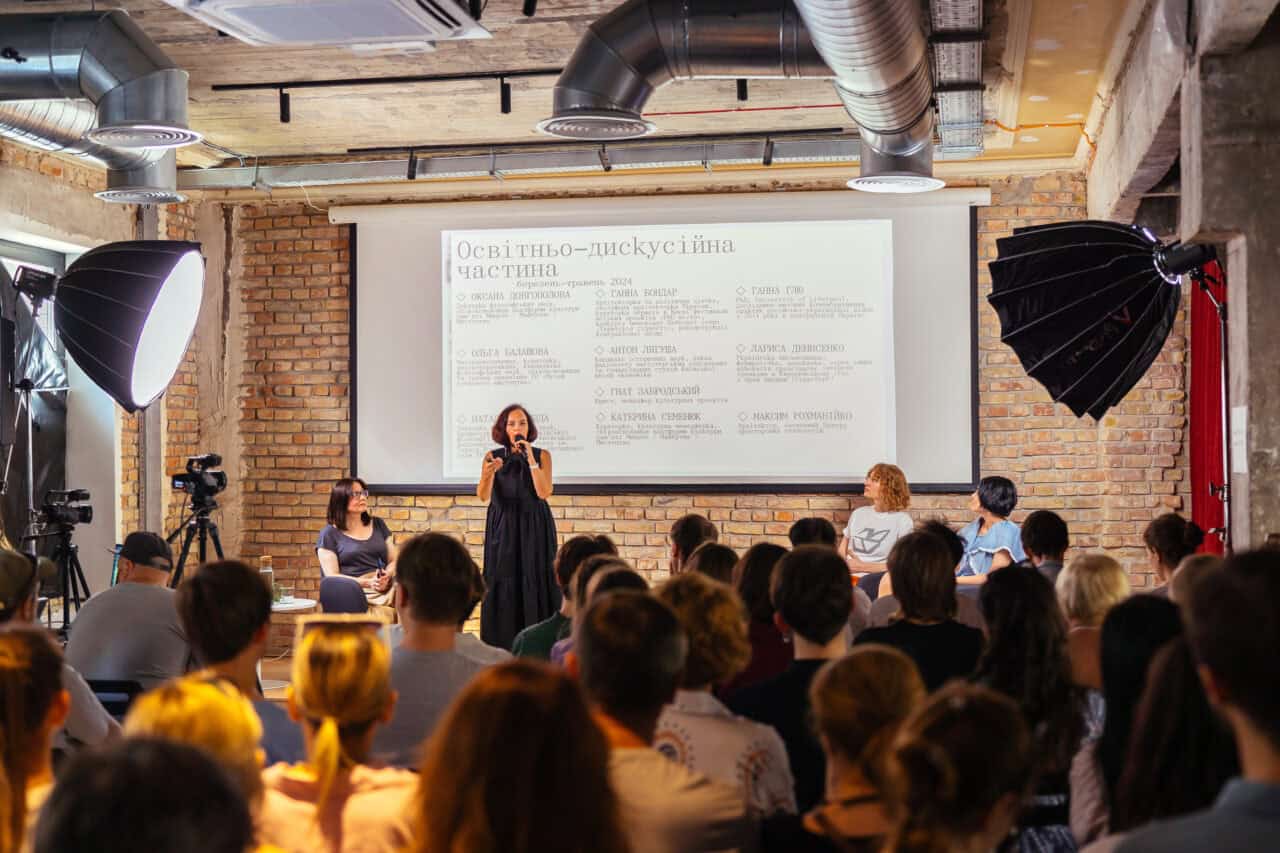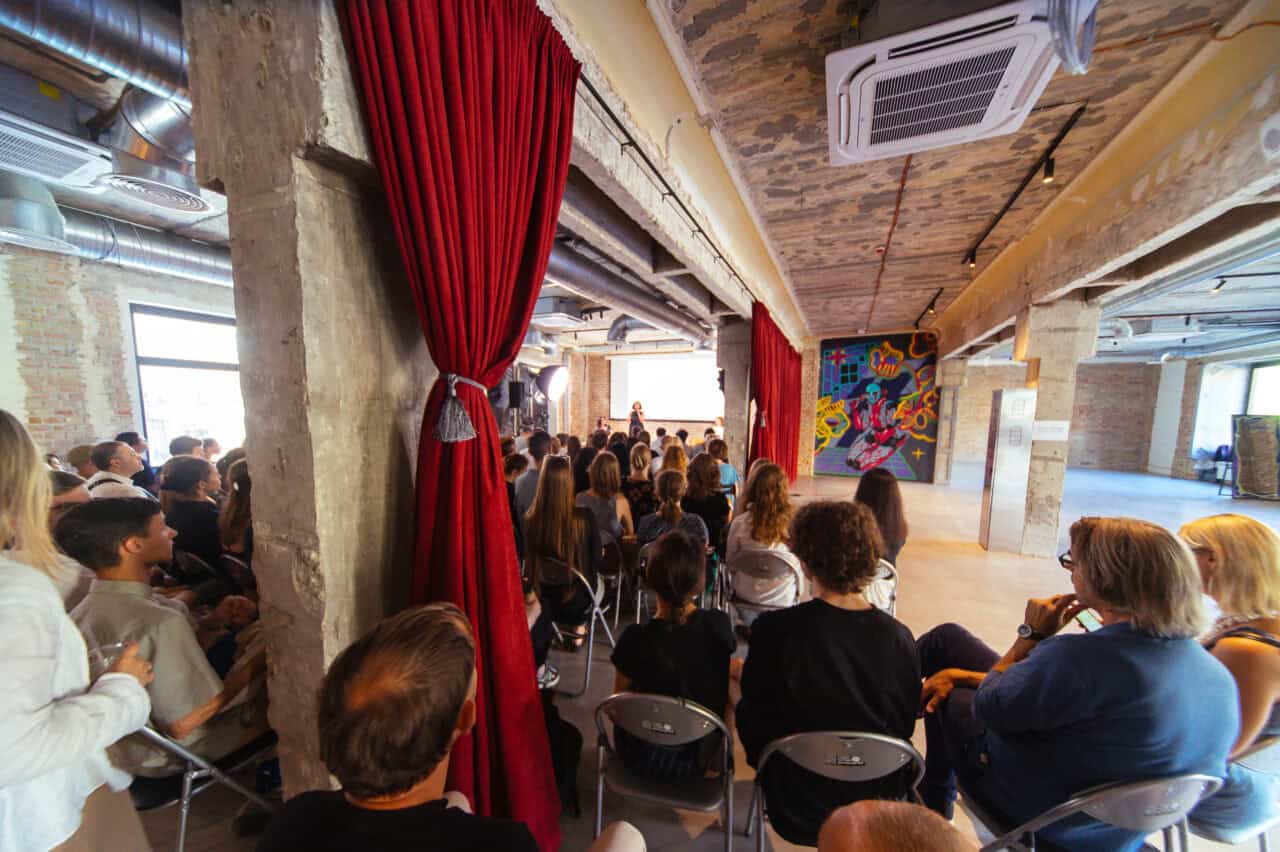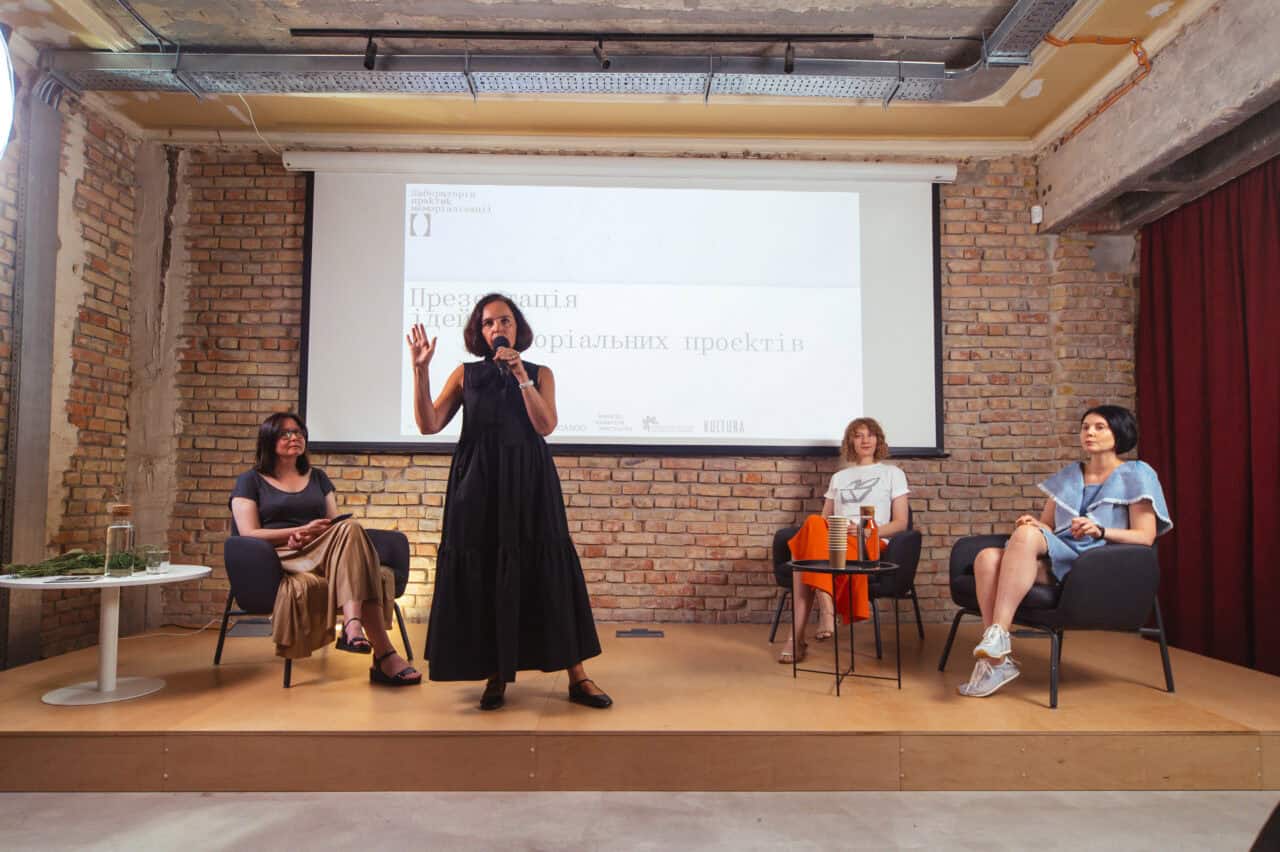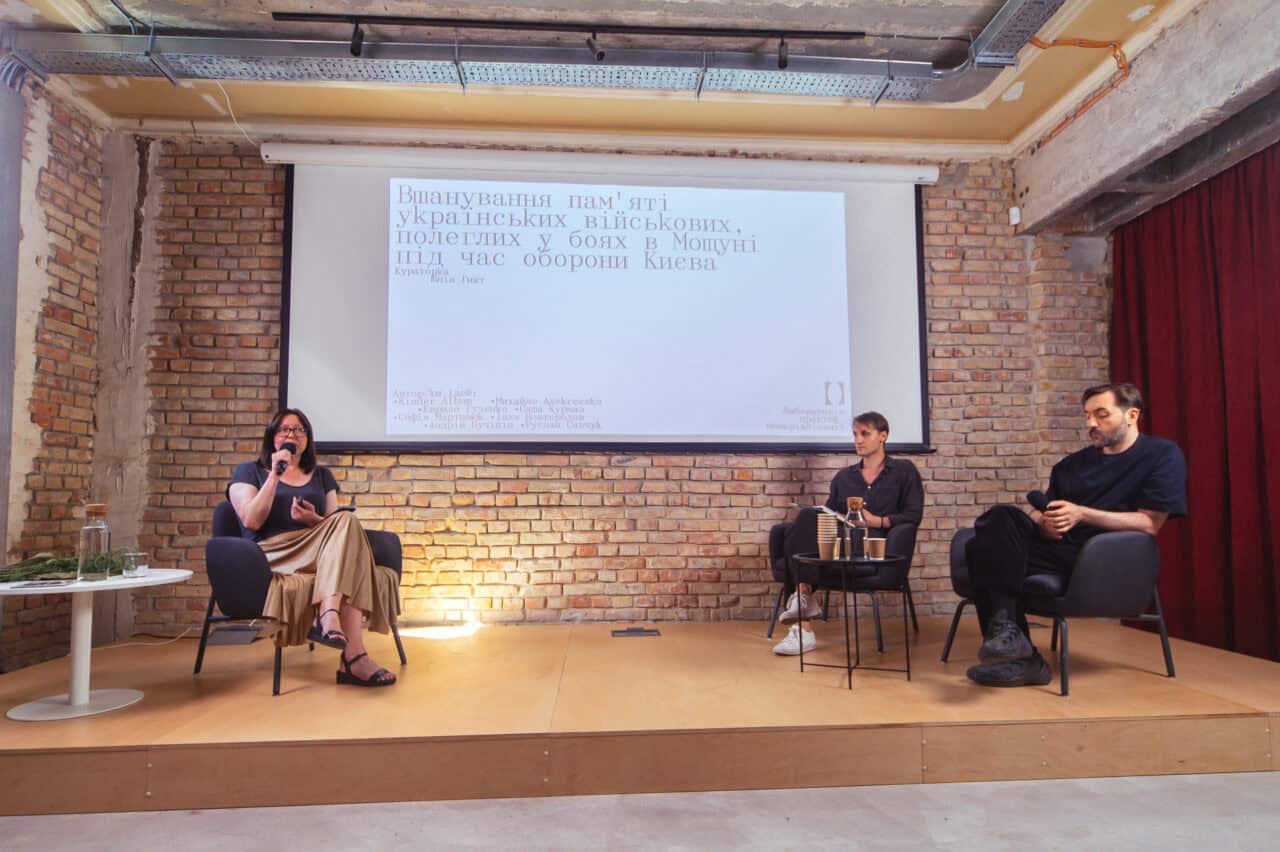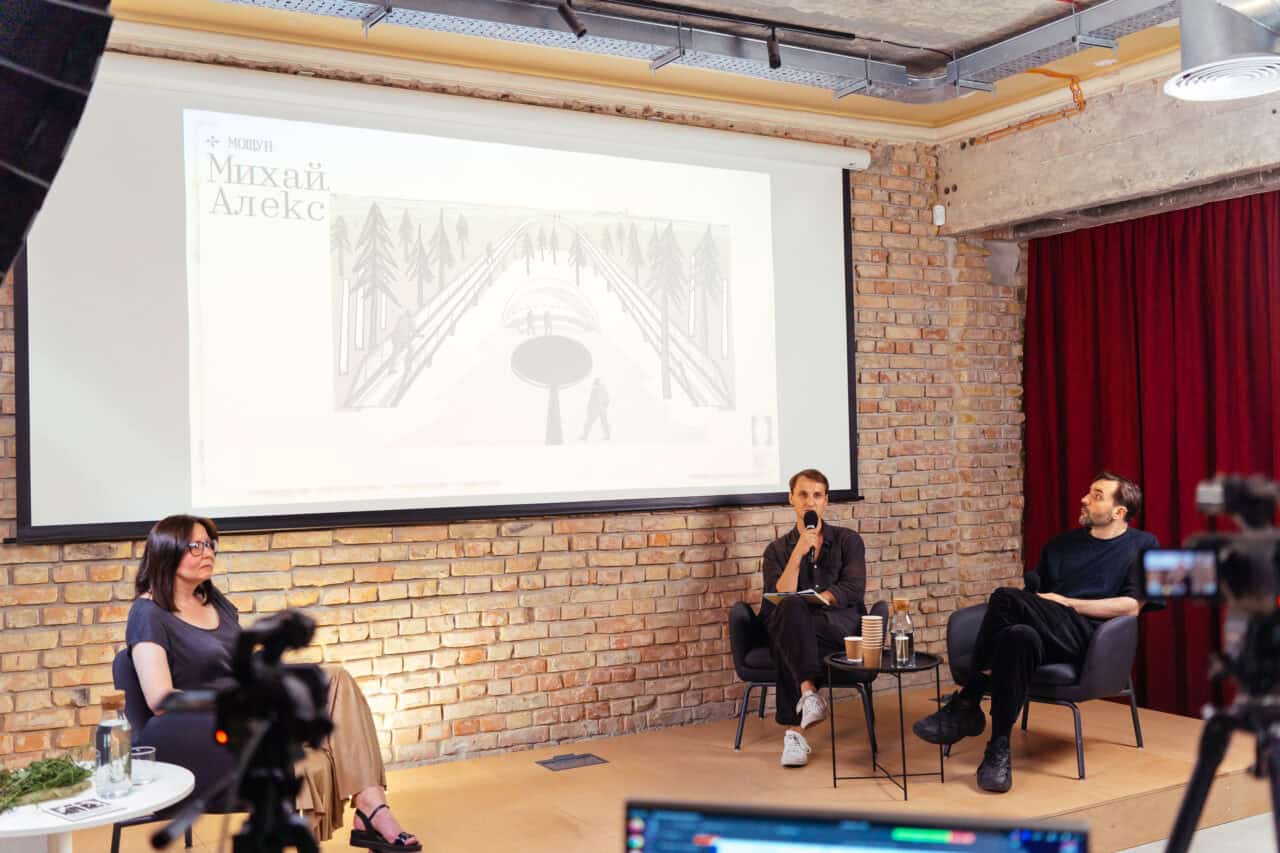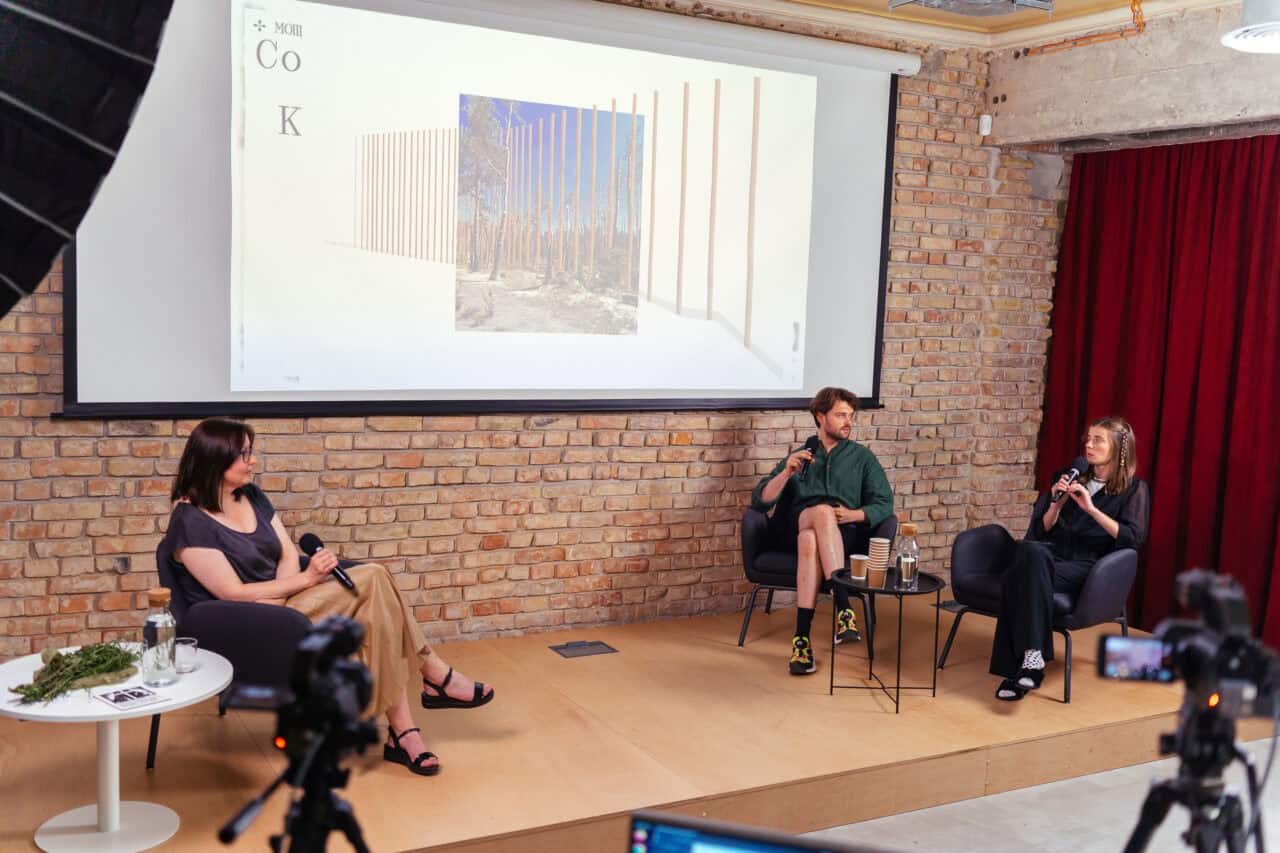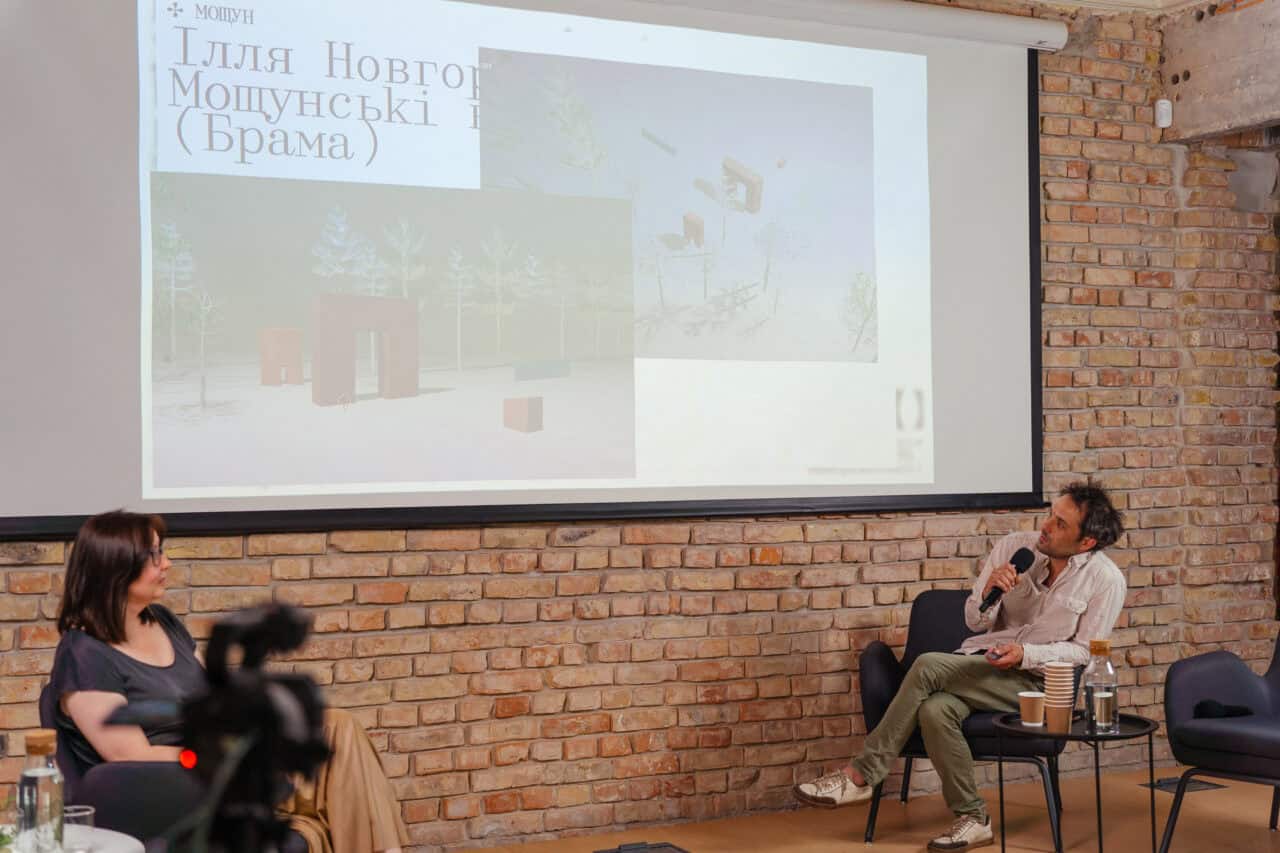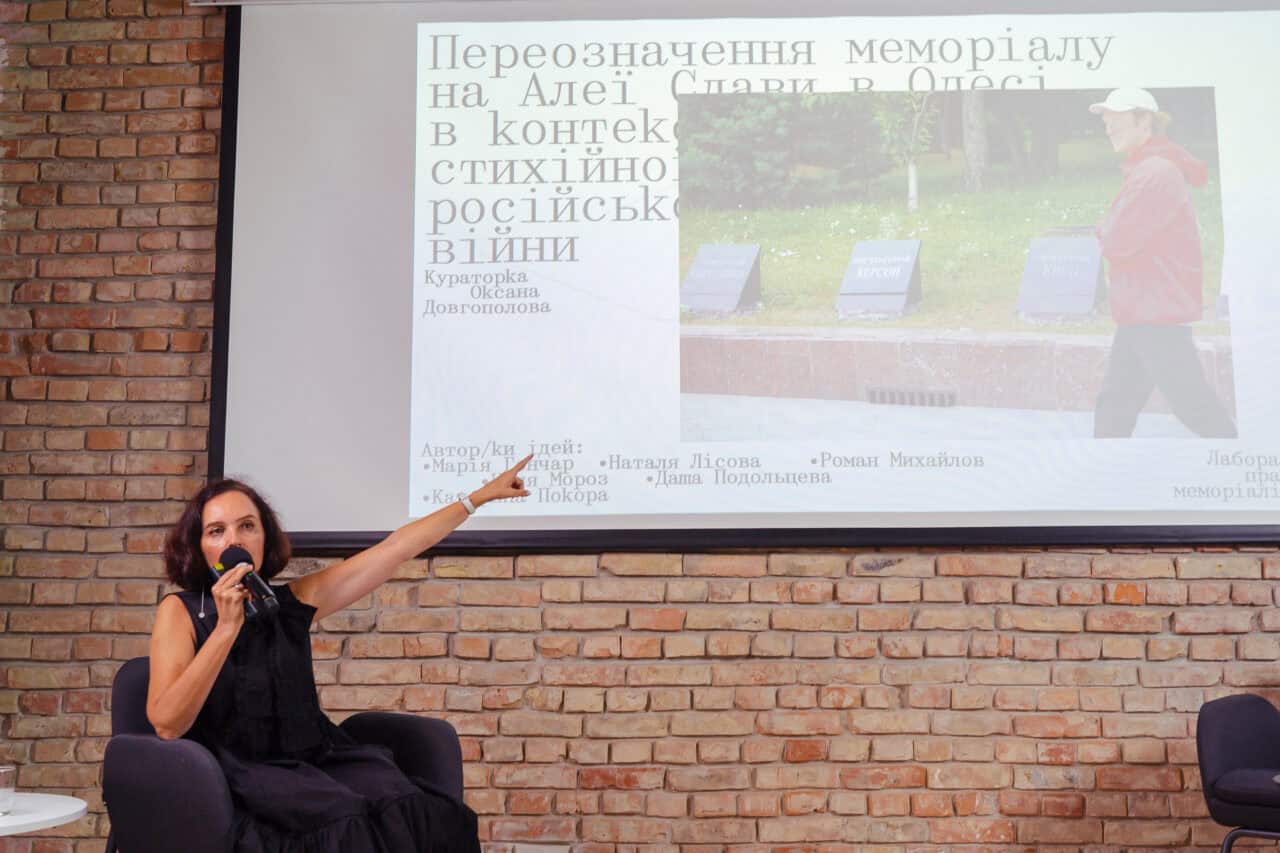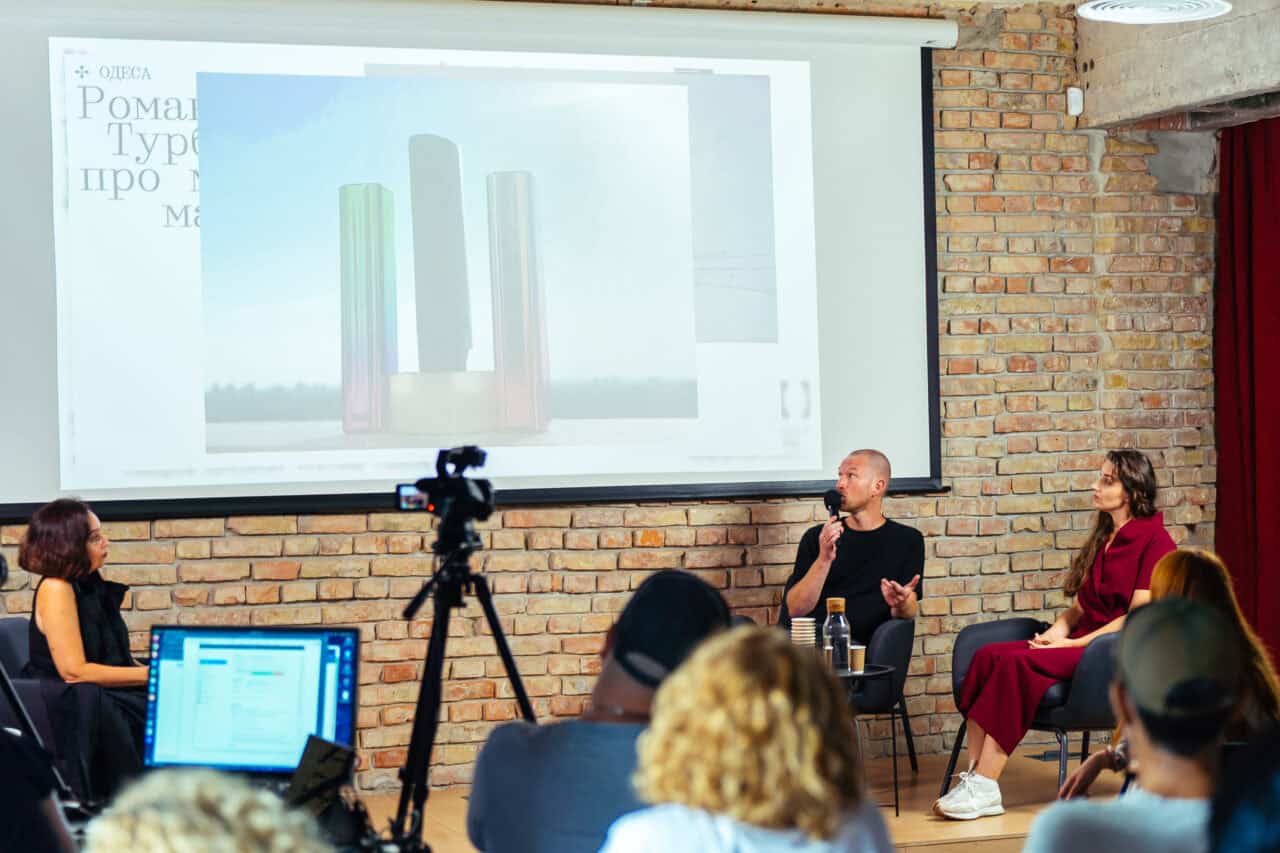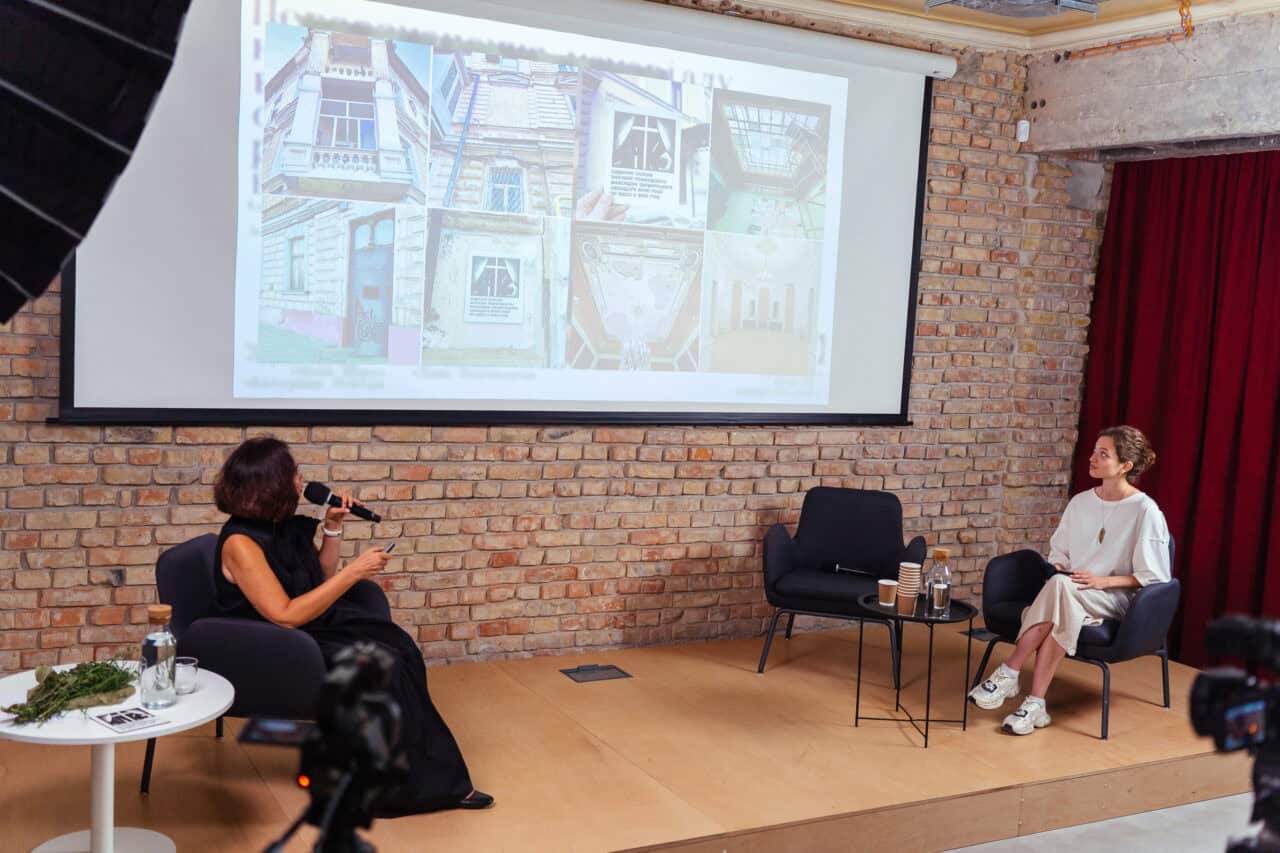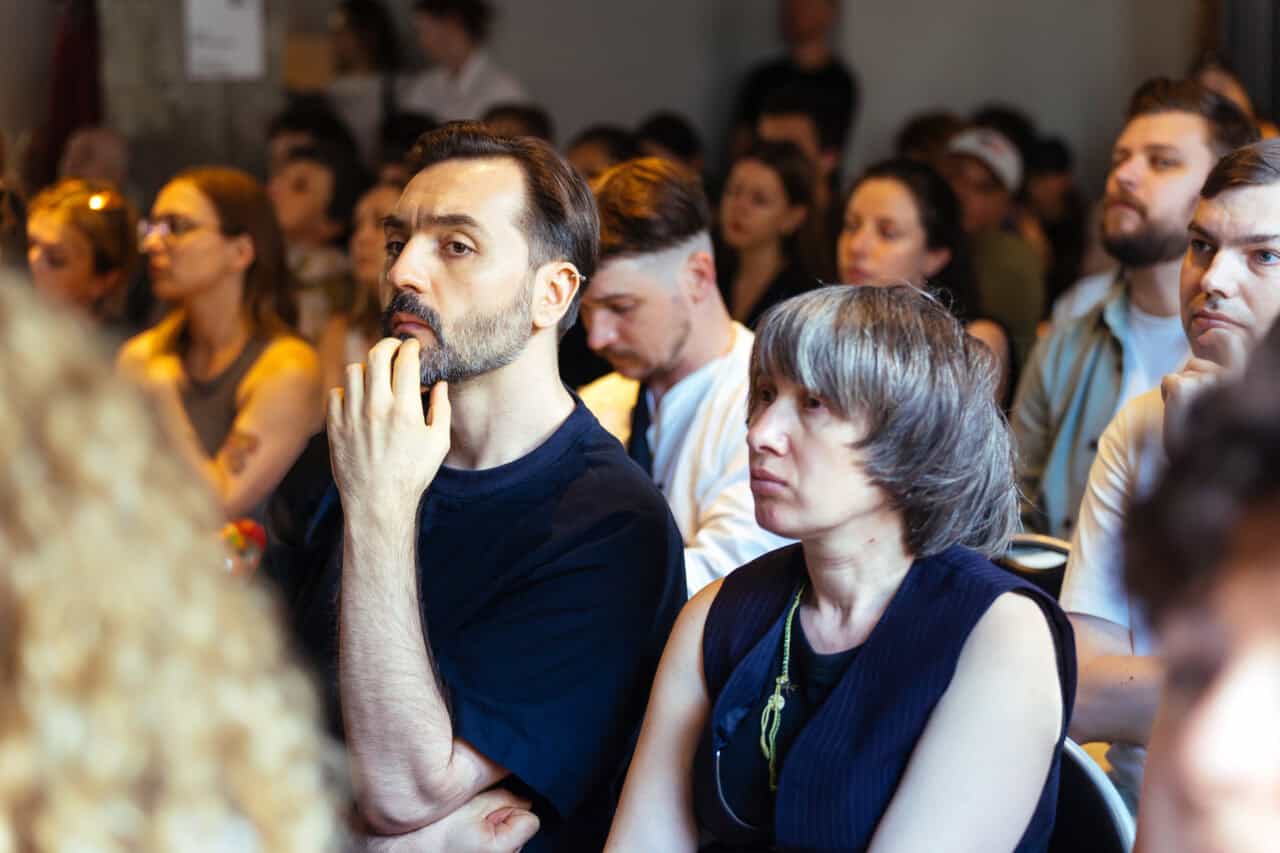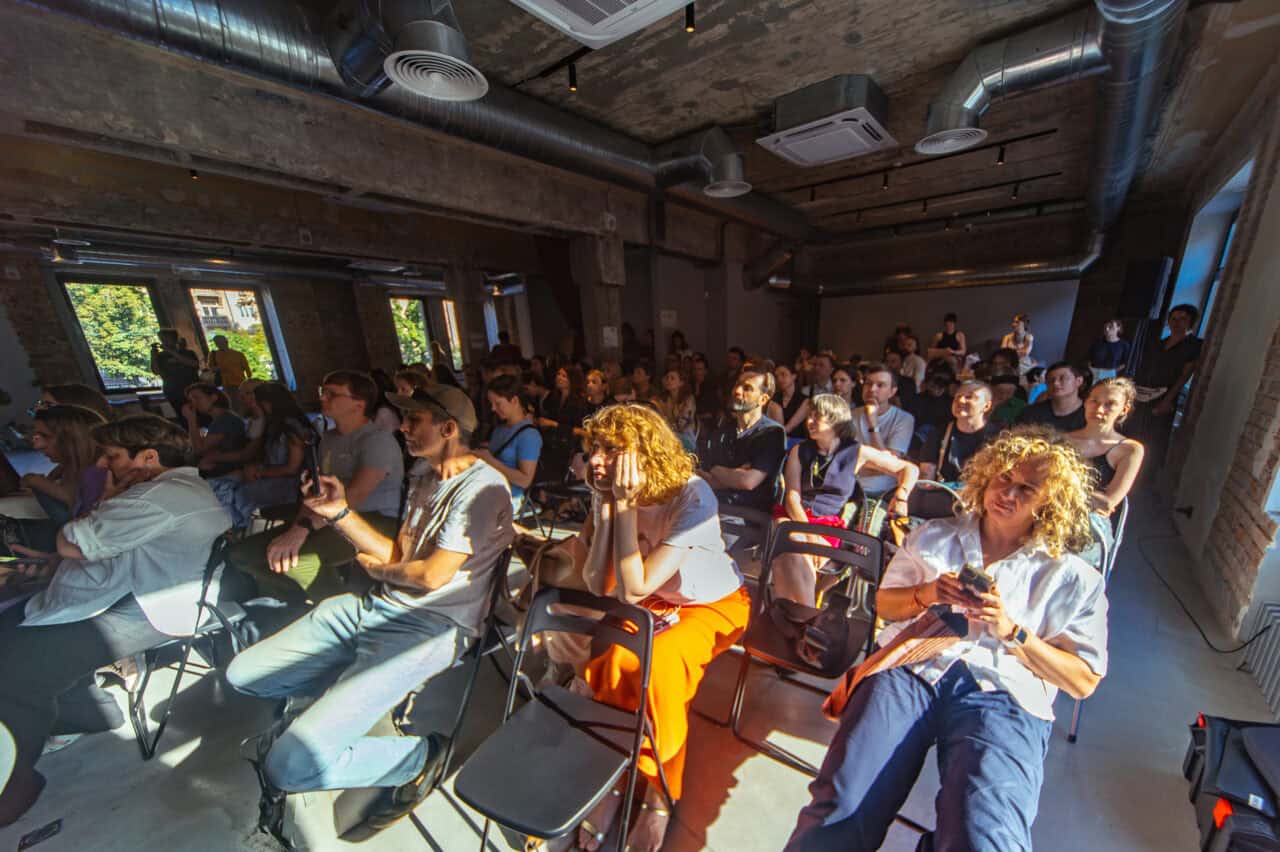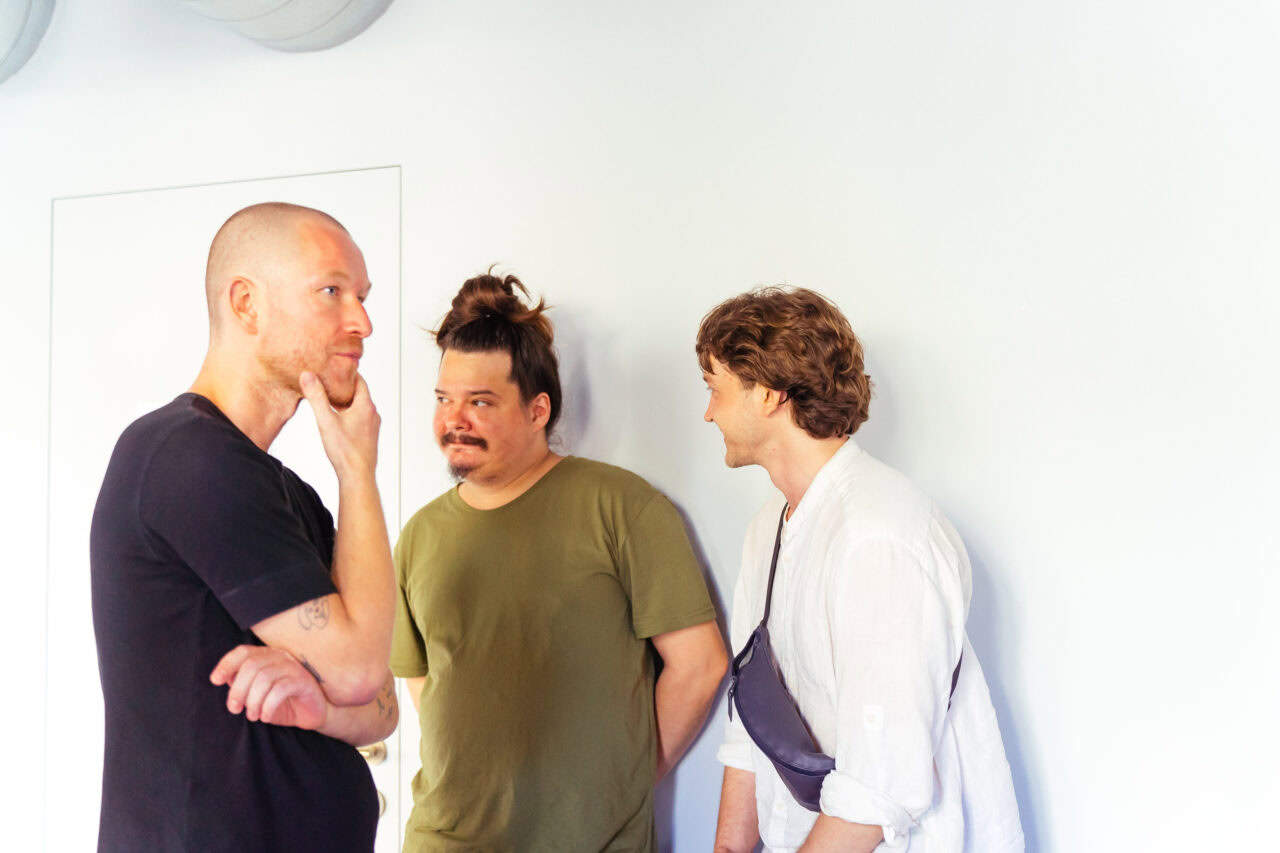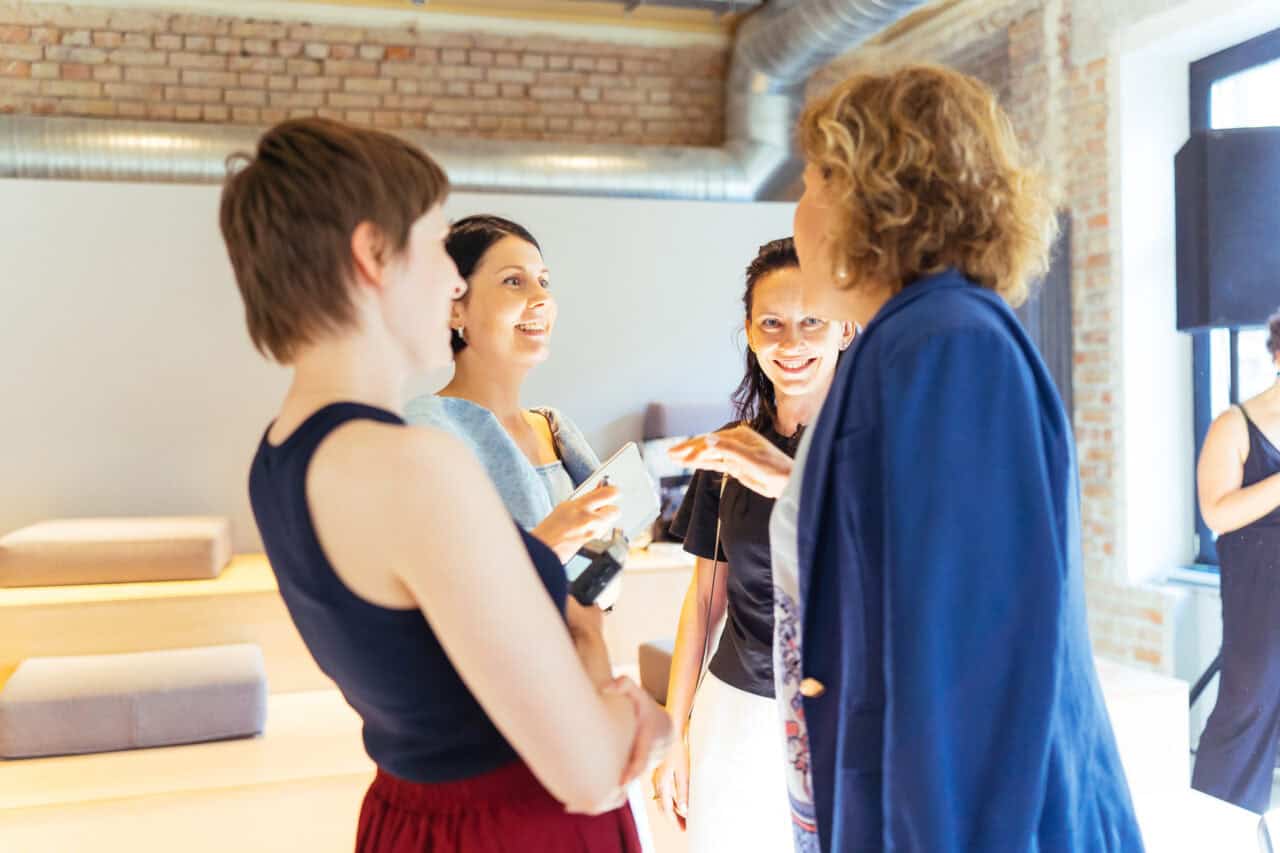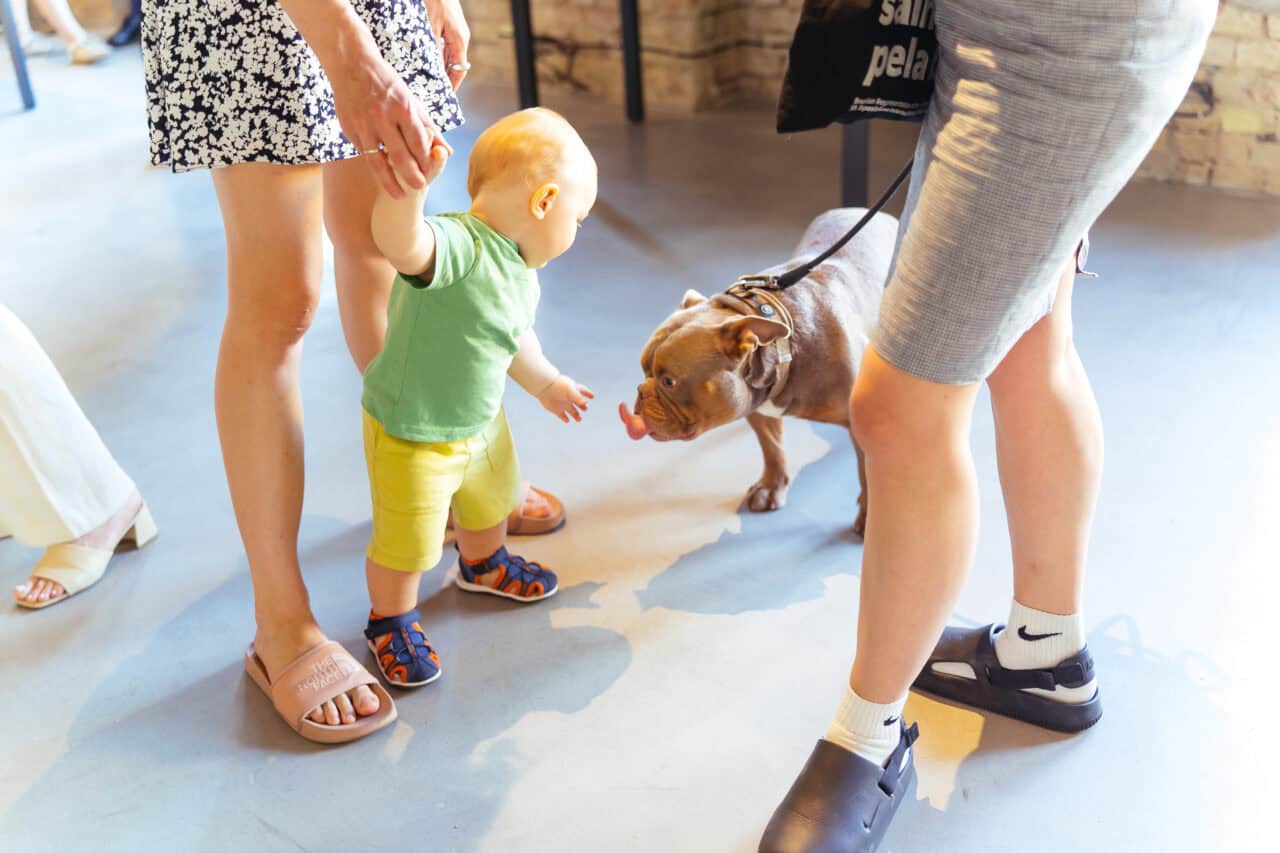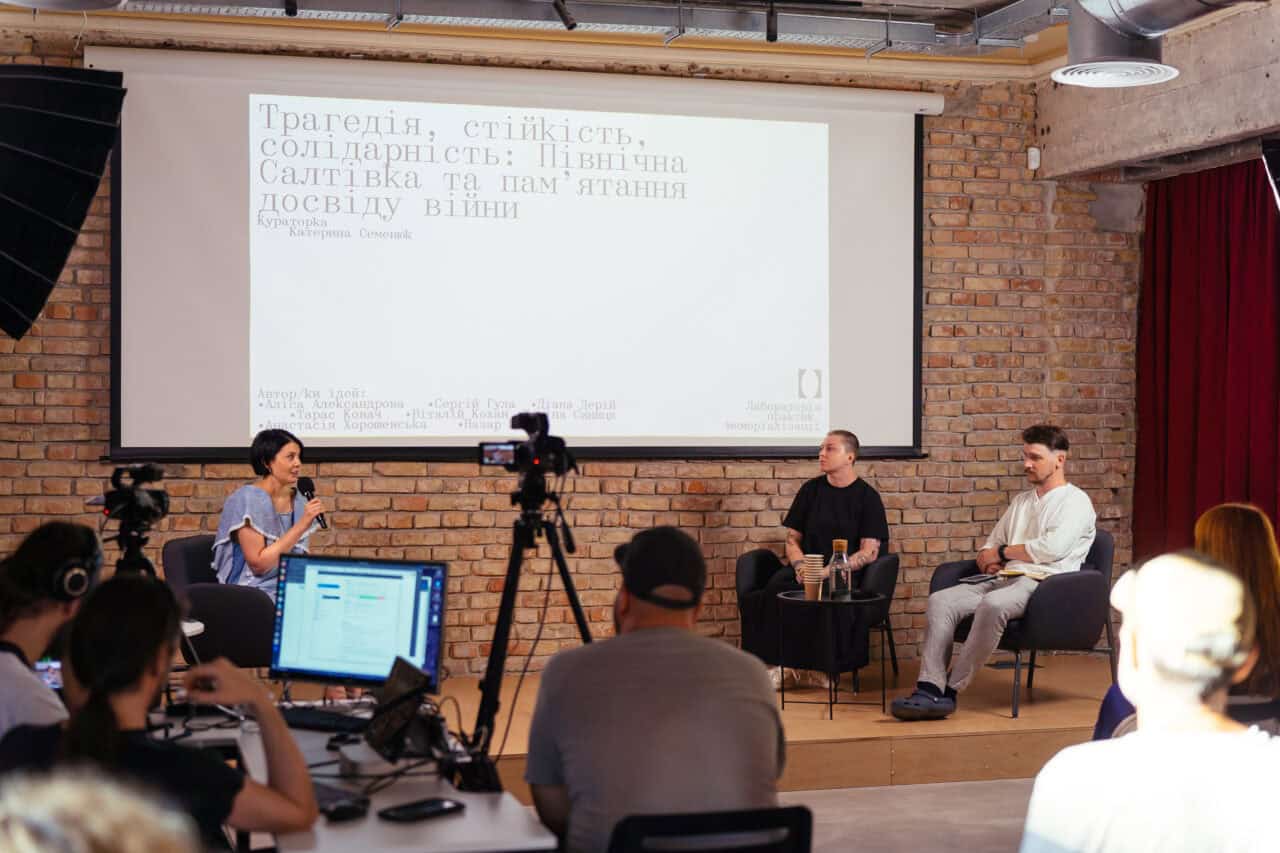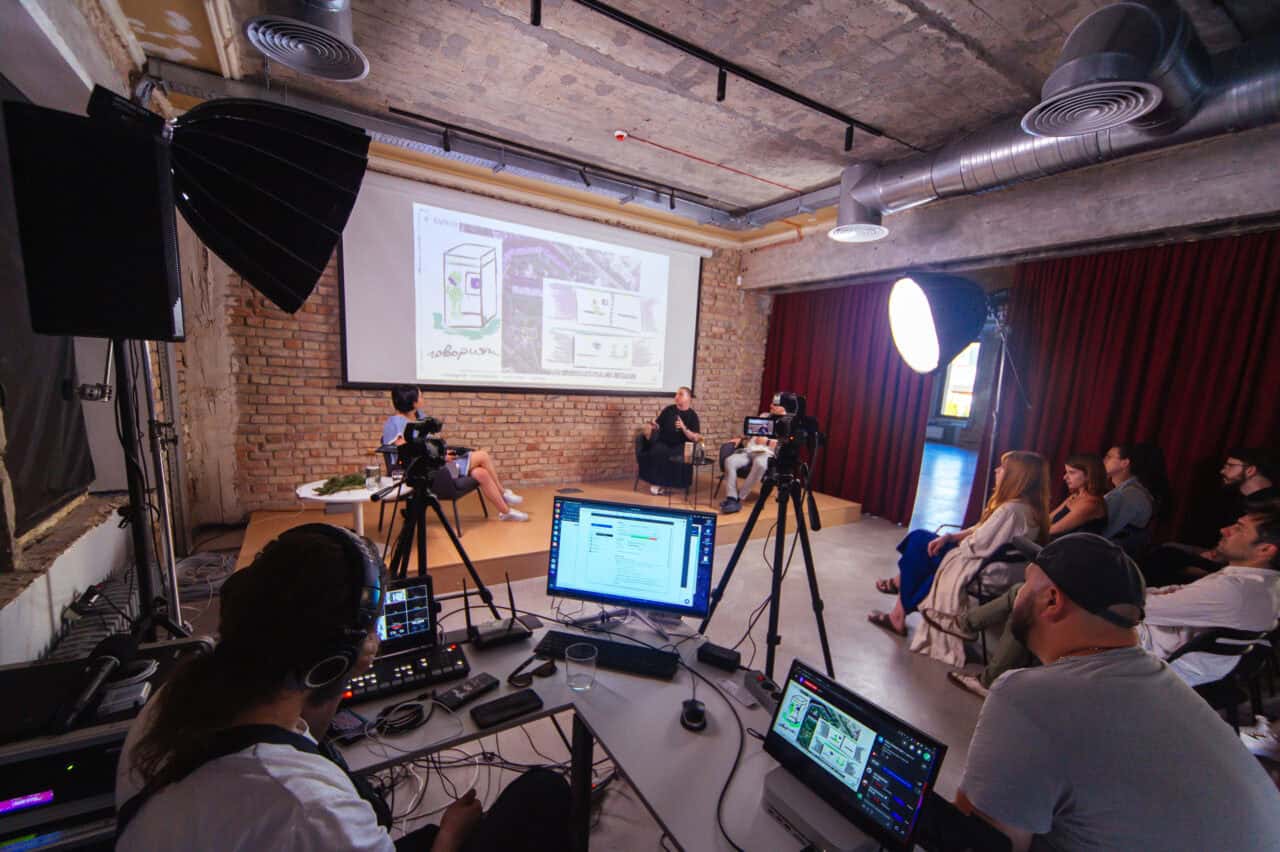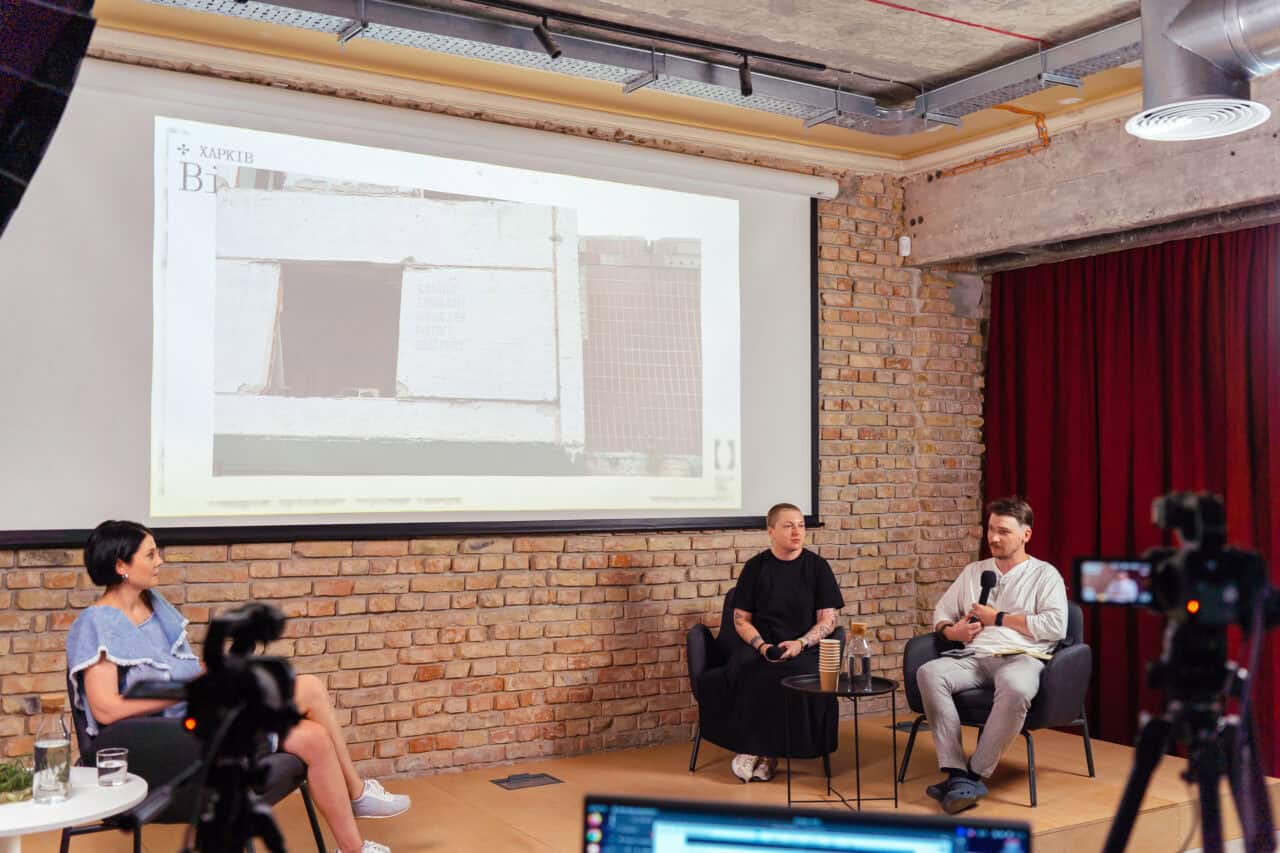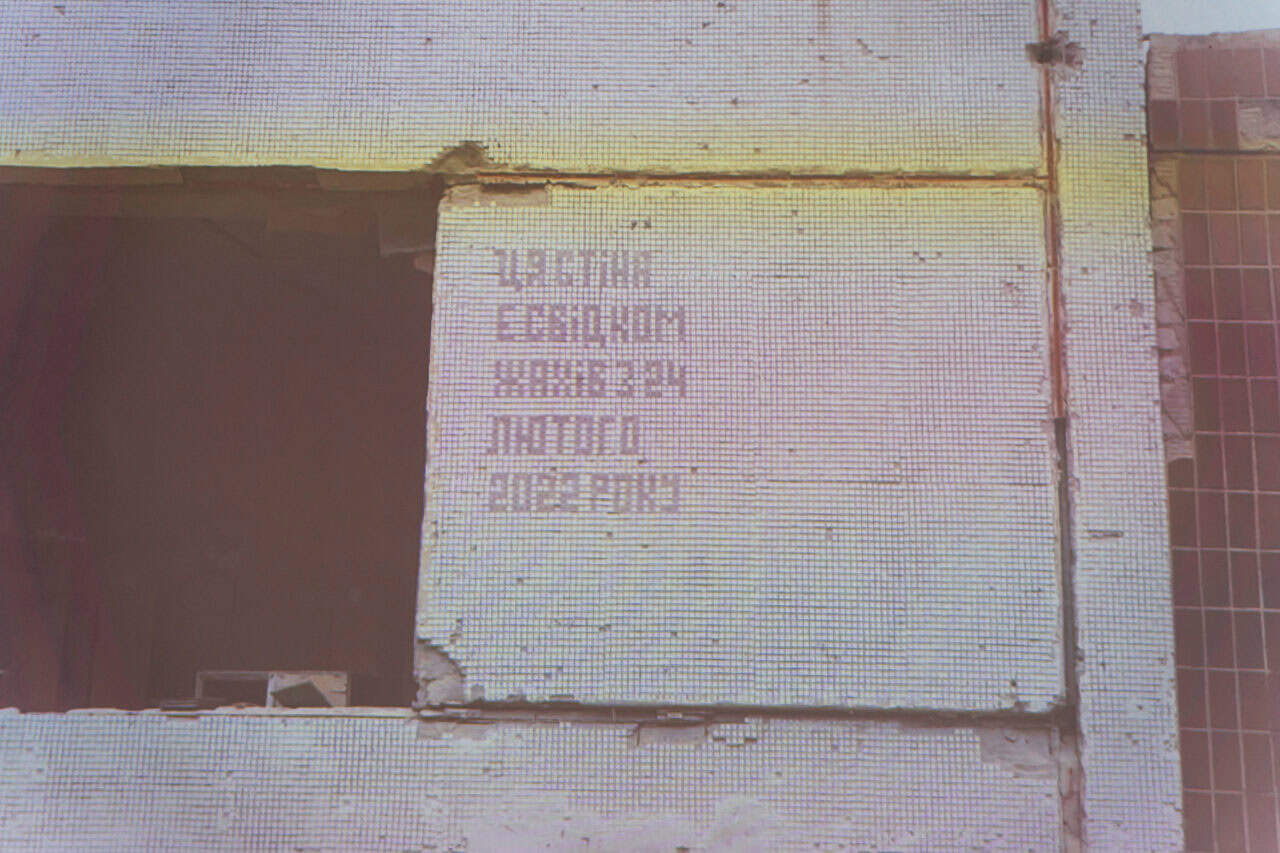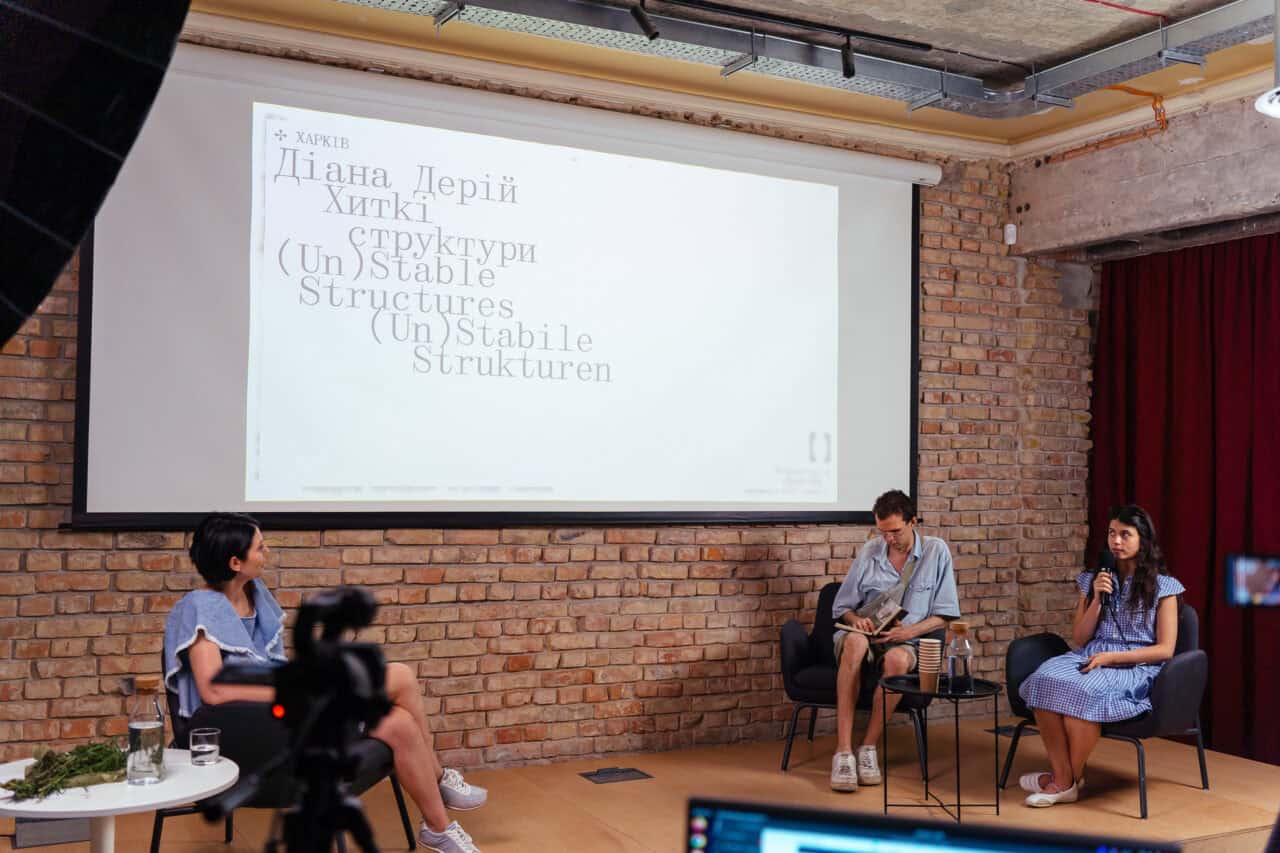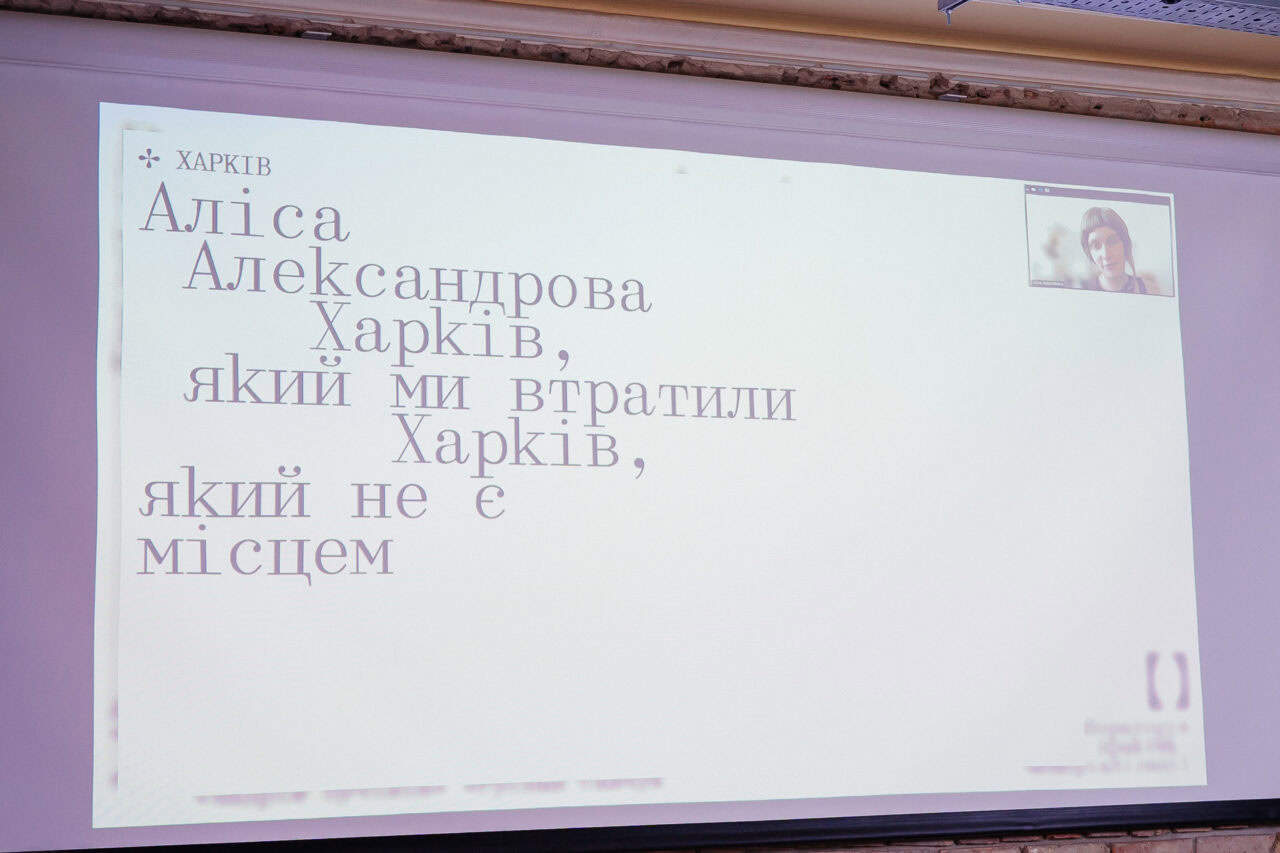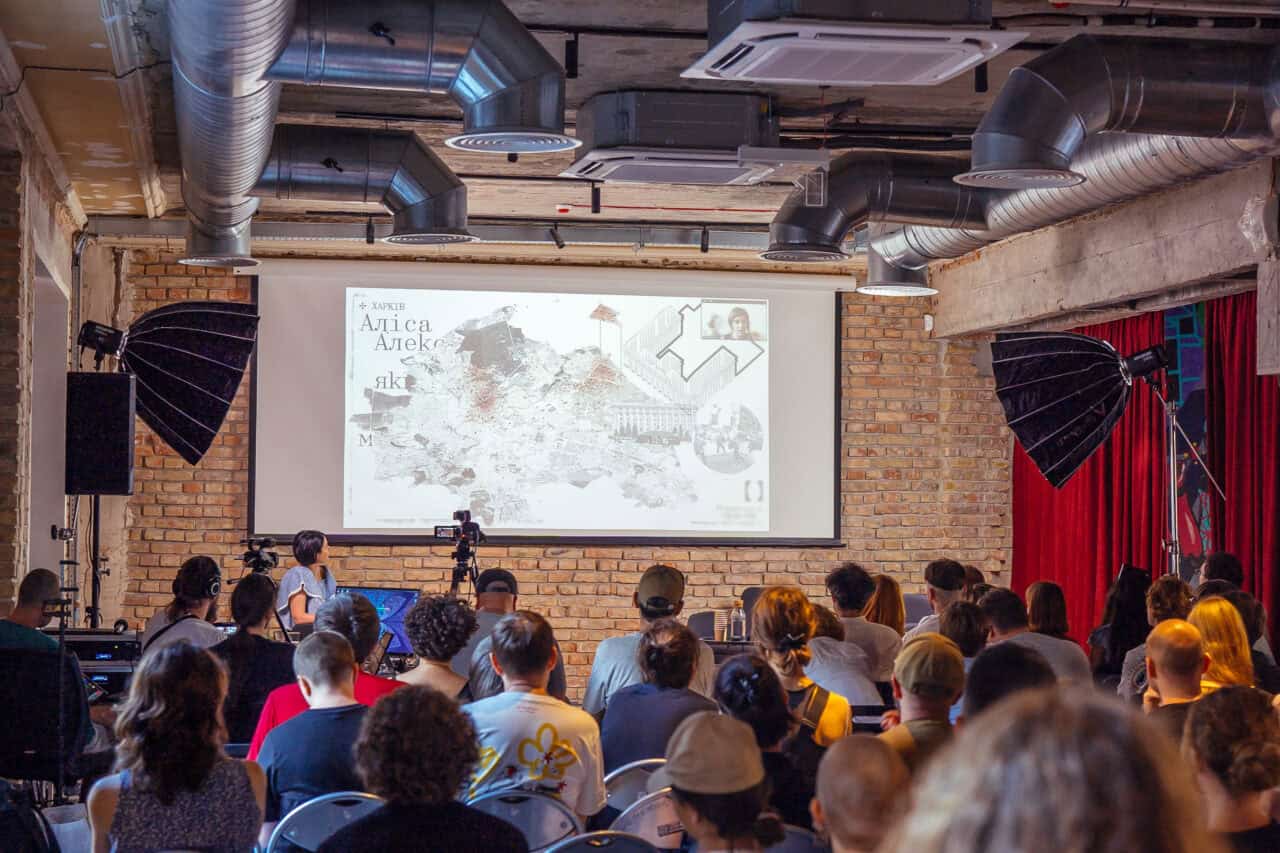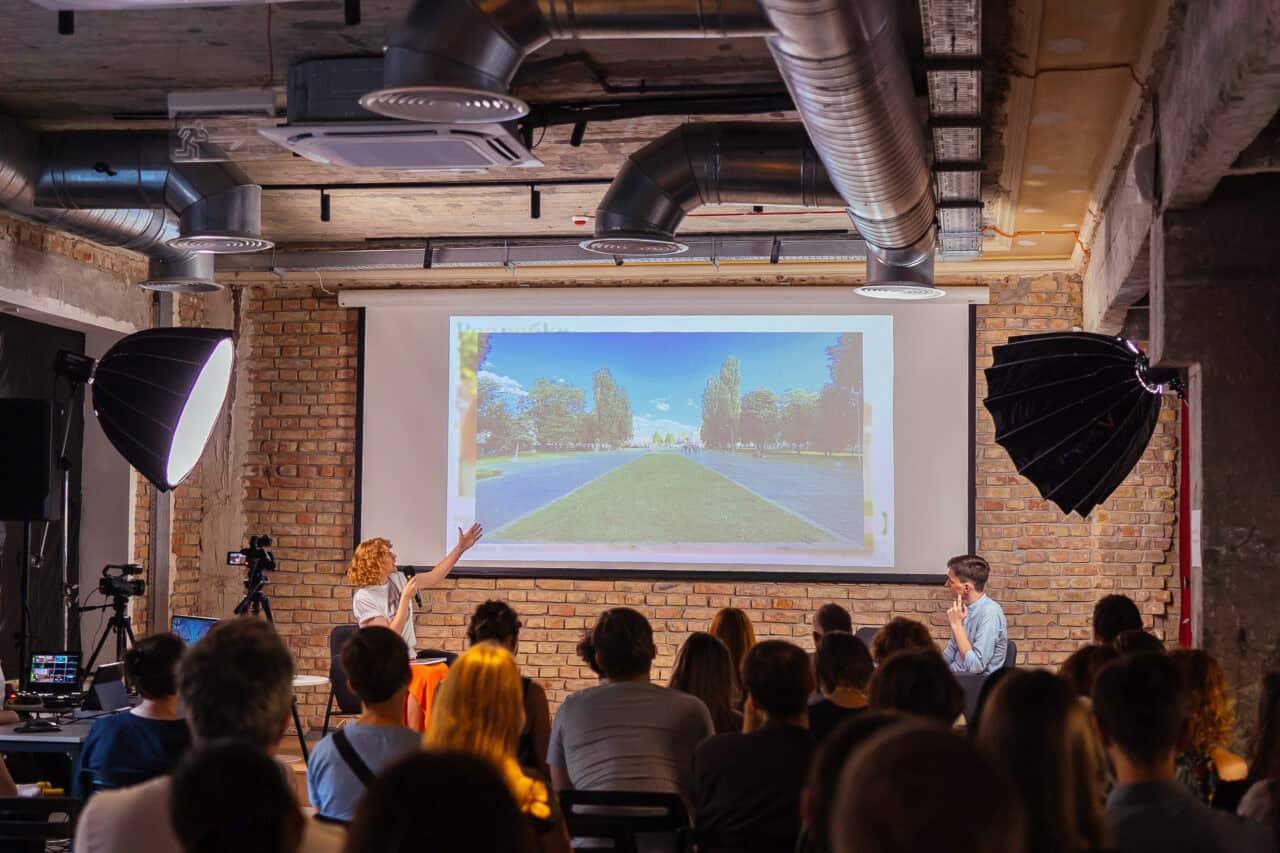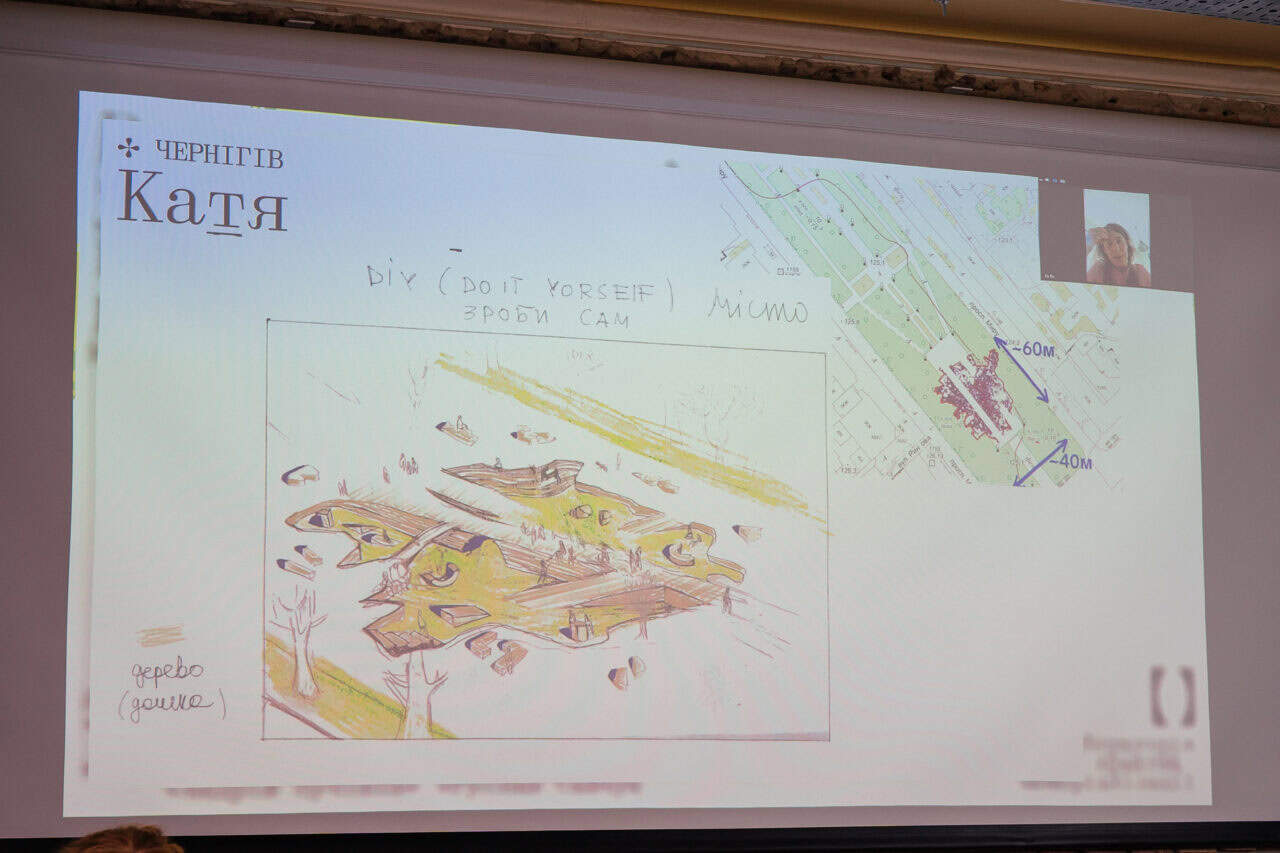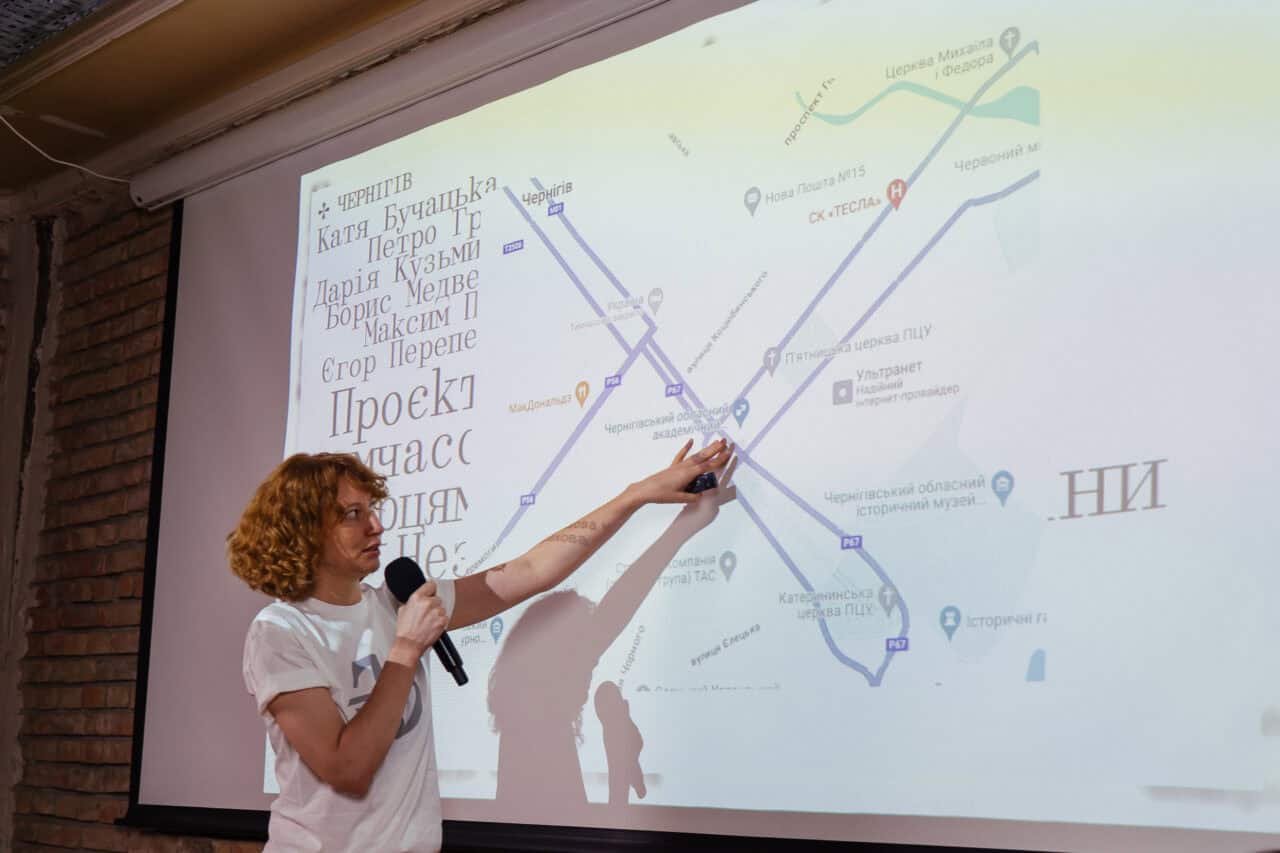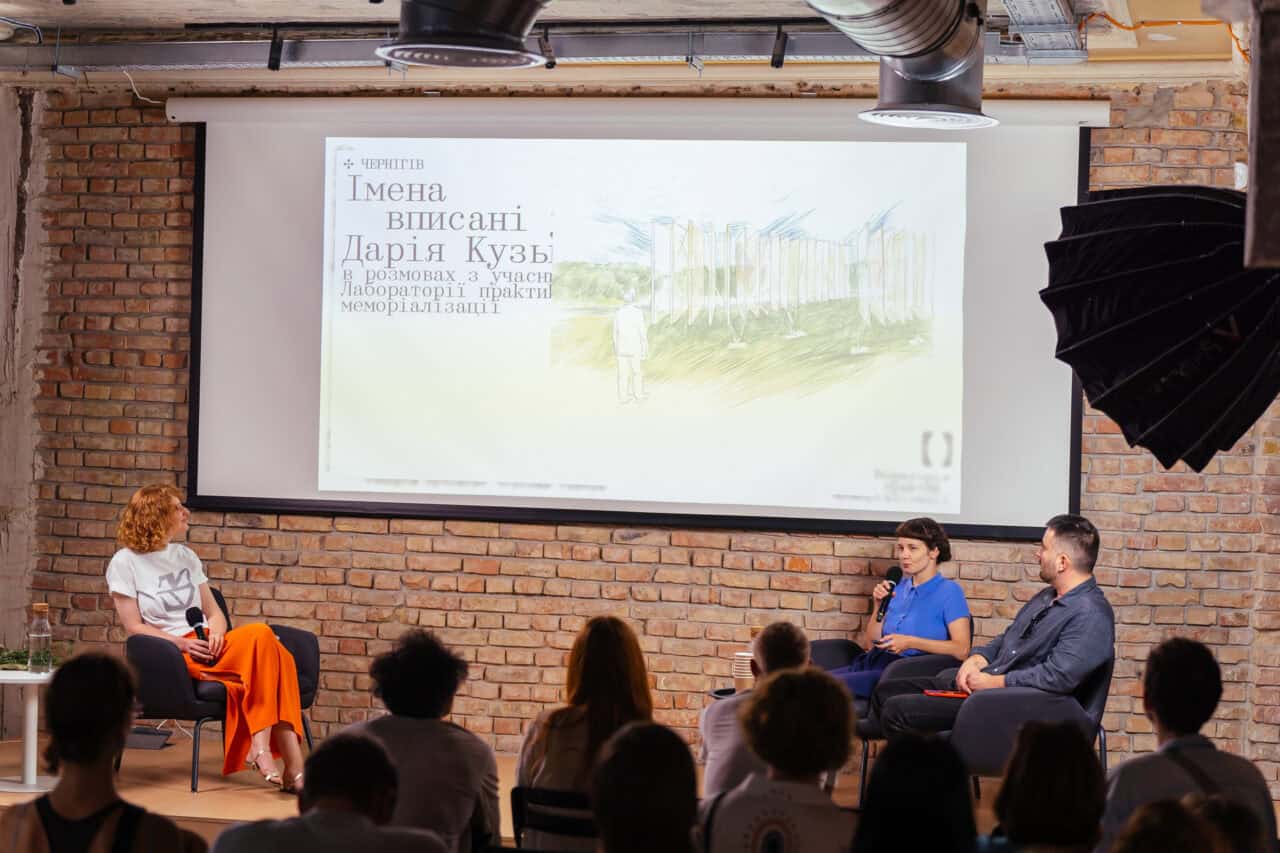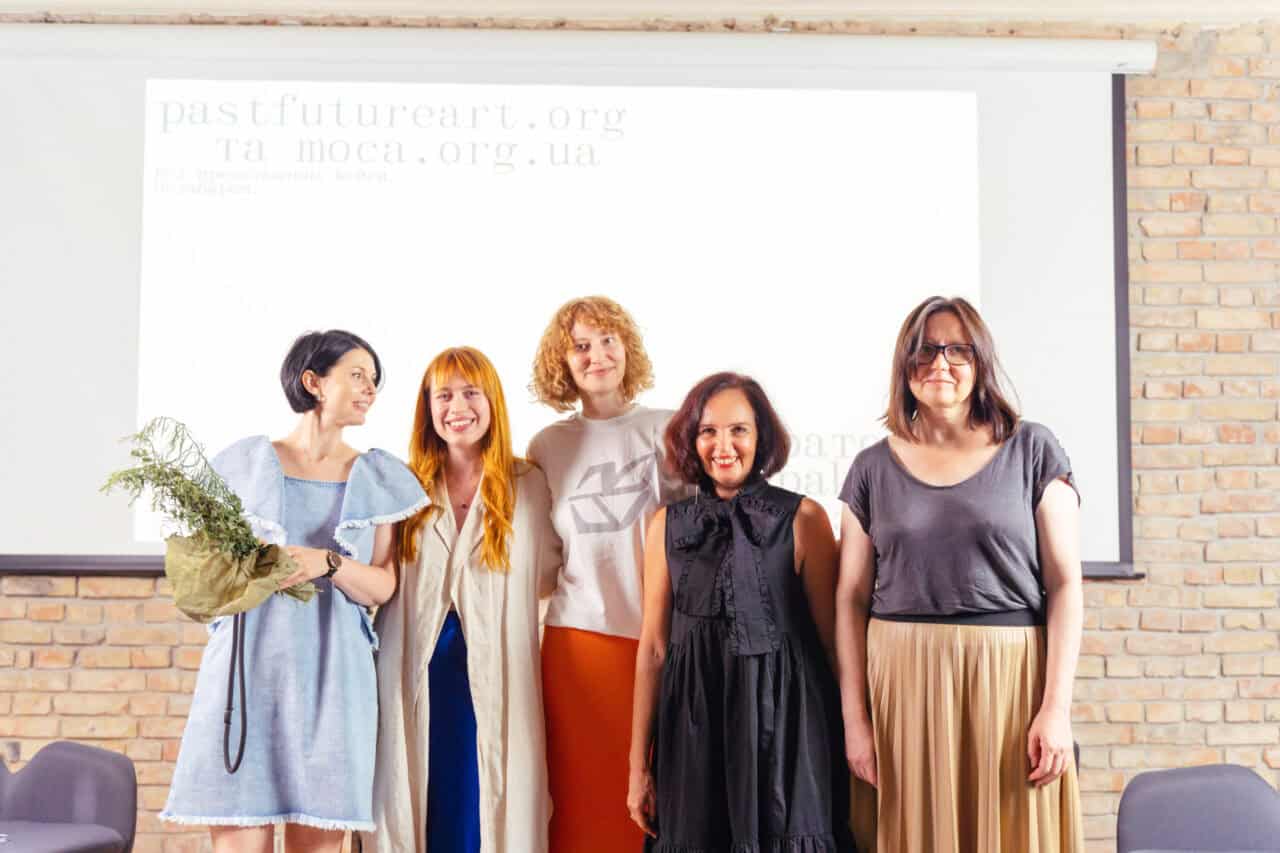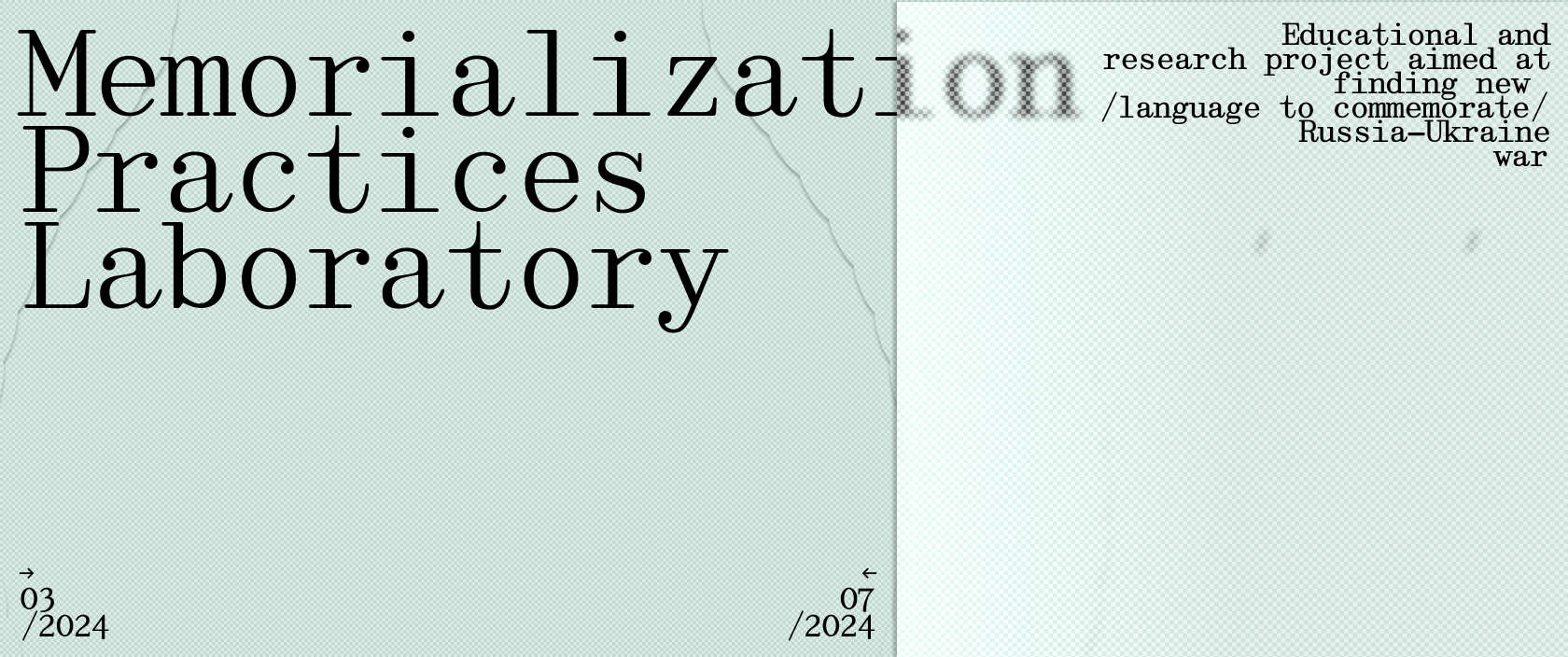
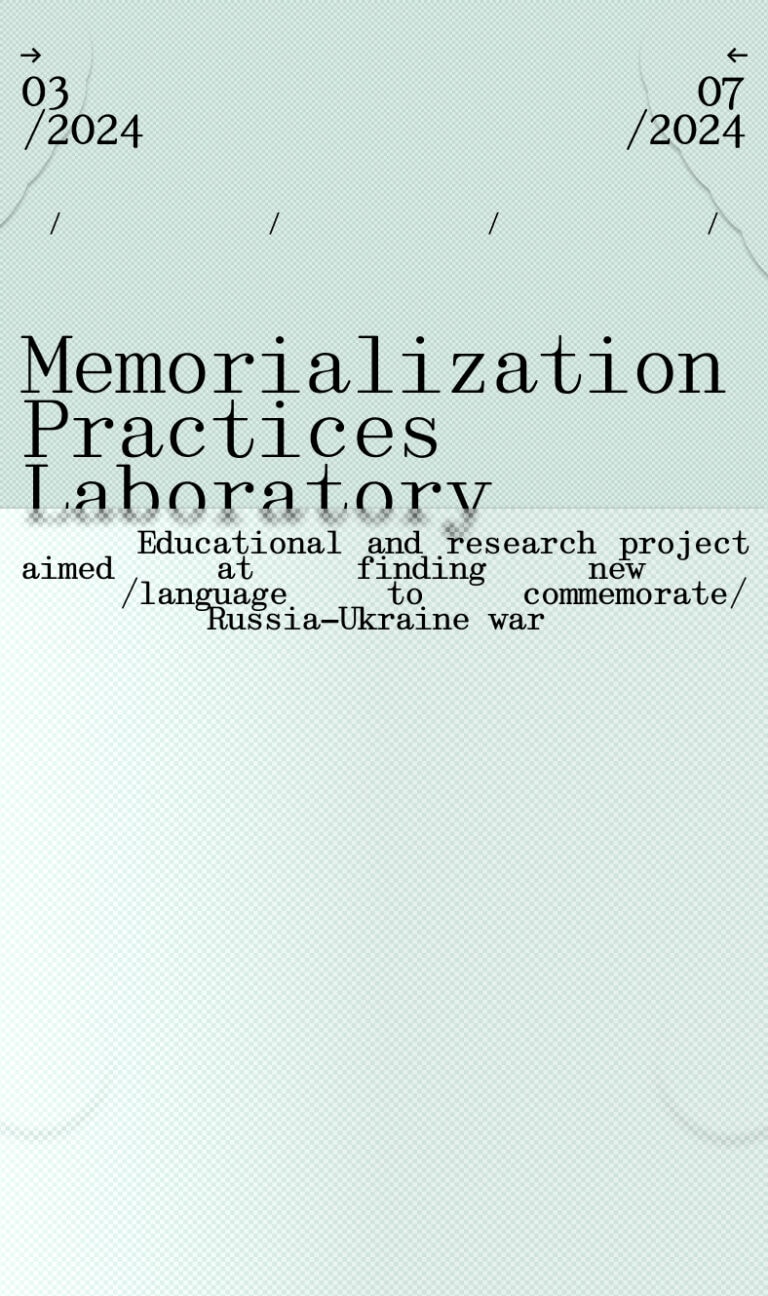
The Past / Future / Art memory culture platform and the Museum of Contemporary Art (MOCA) NGO are launching the Memorialization Practices Lab with support from the Partnership Fund for a Resilient Ukraine. The educational and research project with a practical component will run from March to July 2024.
The Lab aims to search for a new language for commemorating the Russia-Ukraine War and broaden the approaches to creating memorial projects. The participants will learn about important global memorialization practices and jointly develop ideas for memorial objects for several commemoration sites dedicated to the Russia-Ukraine War.
WHY NOW?
Russia’s full-scale invasion of Ukraine has brought about robust societal demand for memorialization, and it will only get stronger. Since the spring of 2022, discussions have been arising around numerous projects, from street renaming to ambitious memorials of national scale.
Building a national memorial is an endeavor only possible after the end of the war. Still, we firmly believe that now is the right time to start engaging with the memory of the tragic events, especially on the local level. Nowadays, many Ukrainians already feel the importance of honoring soldiers killed in action as well as memorializing events and personal experiences of the war in the public space. We respond to this demand instead of ignoring it.
In the first two years of the all-out war memorialization was a spontaneous grassroots practice. However, now more and more often people point out the need for a professional approach, i.e., organizing a community of people familiar with memory-related matters, conducting research, developing competitive selection procedures, building a framework for engaging with traumatic experiences and abiding by it, moving away from the Soviet memorialization language, fostering public dialogue with communities, and finding a means of reaching an agreement in the conflicts that arise due to controversial nature of some memorials.
We aim to change the principles of handling memorial projects in the following ways:
- Having a public discussion is essential when it comes to visual solutions for commemorating tragic events, both in cases of concrete memorials and as it pertains to commemoration practices in general.
- Projects must be thoroughly discussed by professionals and with the local community representatives before implementation.
- Memorial project development is only possible when specialists in different disciplines are involved.
The Lab’s projects will be rooted in this logic, allowing us to evaluate and discuss the value of this approach before offering it to communities for further elaboration. The Lab aims to become a platform for establishing a professional community capable of tackling relevant memorial projects.
What is the importance of memorials today? How do they influence our lives and our future? What should they be like after February 24, 2022? We invite you to find the answers to these questions by working through specific ideas.
WHO IS IT FOR?
Above all, we extend our invitation to participate to visual artists and architects, but memory studies scholars, sociologists, designers, journalists, museum staff, philosophers, IT specialists, and generally anyone interested in engaging with the memorialization of the Russia–Ukraine War are all welcome to join.
The Lab participants will:
- get familiar with the basics of public history and memorialization;
- network, learn from one another, and collaborate with people who deal with the subject of the Russian–Ukrainian War in a variety of fields;
- join the community of professionals exploring collective memory through art;
- participate in interdisciplinary workshops discussing controversial cases of memory work;
- go on study tours to the Russia-Ukraine War sites;
- develop and present their own ideas for memorials for public discussion.
WHAT WILL IT BE LIKE?
The Lab comprises two sections: theoretical, which encompasses educational meetings and workshops, and practical, which is devoted to creating memorial projects and their presentation. You can participate only in the theoretical section (online) or in both practical and theoretical parts (online and offline).
Please note that only applicants physically present in Ukraine can participate in the second (practical) phase of the Lab, as it involves mandatory expeditions to the Russia–Ukraine War sites.
WHAT DOES THE LAB’S THEORETICAL (EDUCATIONAL) SECTION COVER?
The Lab’s first phase involves regular online meetings and workshops with specialists from various fields several times a month. During these, you can learn about how memory studies, public history, psychology, and international law engage with memory, learn about how international memorial competitions are organized, and work in interdisciplinary groups on problems provided by the Lab’s organizers.
Format: Online
EDUCATIONAL PROGRAM SCHEDULE
MARCH 21ST
6:00 pm–6:50 pm
Who creates collective memory in Ukraine during the Russia–Ukraine War? Memory actors
Lecture by Anton Liagusha
6:50 pm–7:15 pm
Legal regulation of establishing memorial objects in public spaces
Lecture by Hnat Zabrodskyi
7:30 pm–9:00 pm
Central messages of the Russia–Ukraine War memorialization
Workshop with the Lab curators
MARCH 28ST
6:00 pm–7:00 pm
Collective trauma, cultural trauma: Genesis and modes of co-existence
Lecture by Natalya Kryvda
7:30 pm–9:00 pm
Case study discussion: Societal demand for memorialization of the military
Workshop with the Lab curators
APRIL 4TH
6:00 pm–7:00 pm
Principles of engaging with collective trauma in the public space and ethical limitations in representing victimhood
Lecture by Larysa Denysenko
7:30 pm–9:00 pm
Ethics of engaging with traumatic experiences in the public space
Workshop with the Lab curators
APRIL 11TH
6:00 pm–7:00 pm
The most famous military memorials: Trends in the language of military memorials
Lecture by Oksana Dovgopolova
7:30 pm–9:00 pm
Military cemeteries in Ukraine: Problems, challenges, and possible solutions
Lecture & Workshop by Anton Liagusha
APRIL 15TH
6:00 pm–7:00 pm
Memorialization cases in Ukraine: Working materials for the participants of the Lab’s practical section
Presentation by the Lab organizers
7:30 pm–9:00 pm
Discussion of the suggested cases
Group work
APRIL 25TH
6:00 pm–7:00 pm
Memorials and counter memorials: Symbolic language and perception contexts
Lecture by Oksana Dovgopolova
7:15 pm–8:15 pm
Local community initiatives for establishing ATO memorials in Ukraine
Lecture by Anna Glew
APRIL 29TH
International and Ukrainian experience in holding memorial competitions
Lectures
6:00 pm–6:45 pm
Hanna Bondar
6:45–7:30
Kateryna Semenyuk
7:45 pm–9:00 pm
Commemorative gestures in the commercial space
Workshop with Larysa Denysenko
MAY 9TH
6:00 pm–7:00 pm
Topics and imagery in Ukrainian art brought about by Russia’s full-scale invasion of Ukraine
Lecture by Olga Balashova
7:30 pm–9:00 pm
Memorialization of occupied and destroyed cities. Efforts by destroyed cities’ communities and investigation of the Mariupol theater airstrike by the Center for Spatial Technologies
Discussion with Maksym Rokmaniko, an architect, founding director of the Center for Spatial Technologies
SPEAKERS
Olga Balashova, a Candidate of Philosophical Sciences, an art historian, curator, media theorist, co-founder and chairwoman of the board of the Museum of Contemporary Art NGO
Hanna Bondar, an architect and political activist, Honored Architect of Ukraine, curator of Kyiv’s first urban project festival “PRO misto”, the Heavenly Hundred memorial competition (Territory of Dignity), and reconstruction of Kontraktova Square
Larysa Denysenko, a Ukrainian writer, journalist, and lawyer, one of the lawyers representing the citizens in the European Court of Human Rights (Strasbourg), licensed to practice law on refugee and migrant matters in Toronto and Ottawa
Oksana Dovgopolova, PhD, a co-founder of the Past / Future / Art memory culture platform
Anna Glew, PhD, University of Liverpool, a scholar focusing on grassroots commemorative practices of the Russia–Ukraine War in Central Ukraine since 2014
Natalya Kryvda, PhD, a professor of the Department of Ukrainian Philosophy and Culture at the Taras Shevchenko National University of Kyiv, Academic Director of Edinburgh Business School’s MBA Programs in Ukraine
Anton Liagusha, a Candidate of Historical Sciences, the Dean of the Graduate Department of Social Sciences and Humanities at the Kyiv School of Economics
Maksym Rokmaniko, an architect, founding director of the Center for Spatial Technologies
Kateryna Semenyuk, a curator and cultural manager, co-founder of the Past / Future / Art culture platform
Hnat Zabrodskyy, a legal expert and cultural project manager
WHAT IS THE LAB’S PRACTICAL SECTION ABOUT?
During the Lab’s second phase, the participants will develop one of the cases for war commemoration in Ukraine provided by the organizers. Each case will be directly tied to a specific commemorative site, and the ideas will be elaborated in dialogue with the representatives of the local community.
The participants are expected to tackle the cases in interdisciplinary groups, but working on the project solo is also an option. Expeditions to memorialization sites, consultations, and supervision will be organized for the participants of the practical section.
Only the participants physically present in Ukraine can join the Lab’s second phase because of the expedition commitment. There is no way to participate in it remotely.
Opportunity to join the practical part will depend on the results of an interview with the Lab’s organizers.
CURATORS
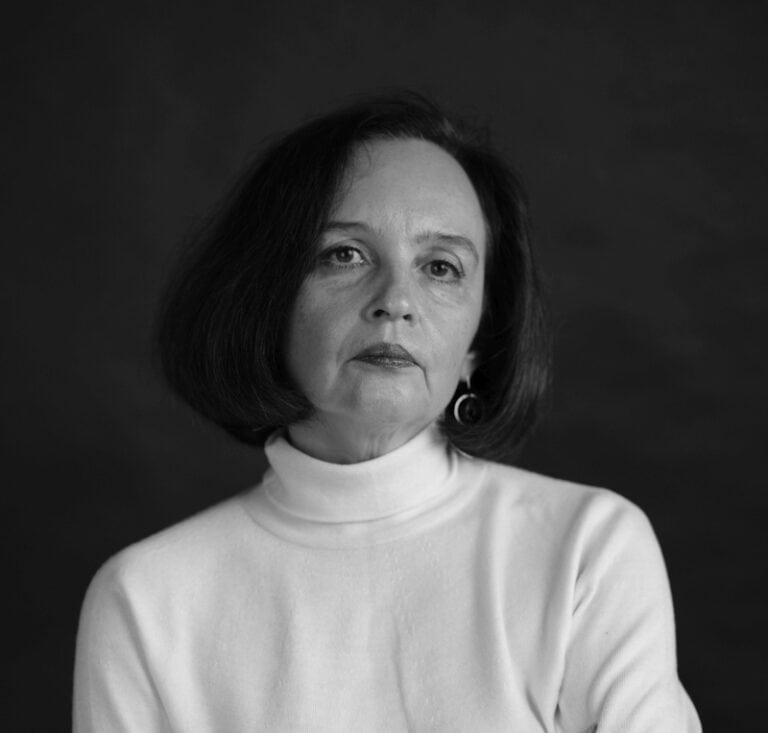
Oksana Dovgopolova
PhD, co-founder of the Past / Future / Art memory culture platform, and member of the Memory Studies Association
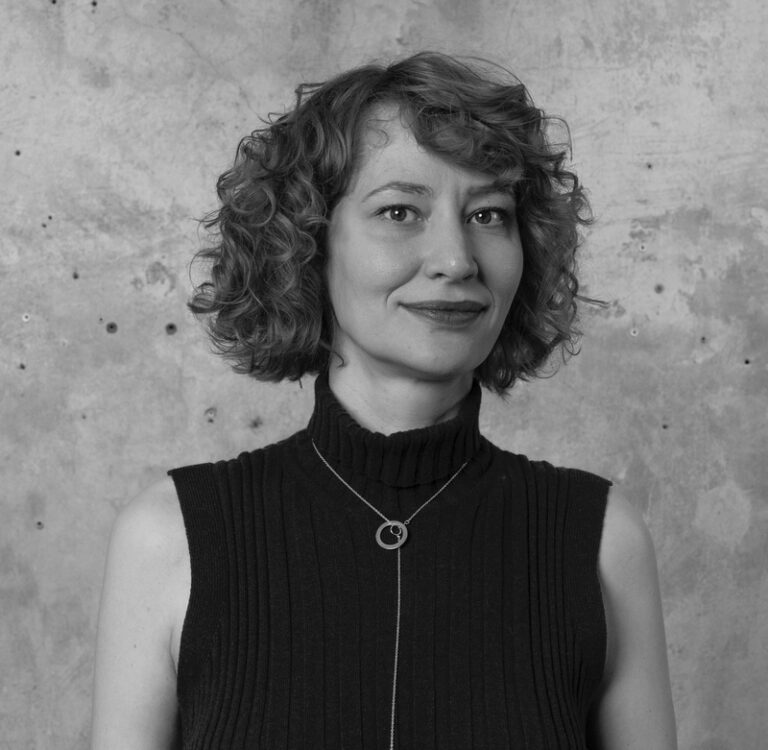
Olga Balashova
Art historian, co-founder and chairwoman of the board of the Museum of Contemporary Art NGO
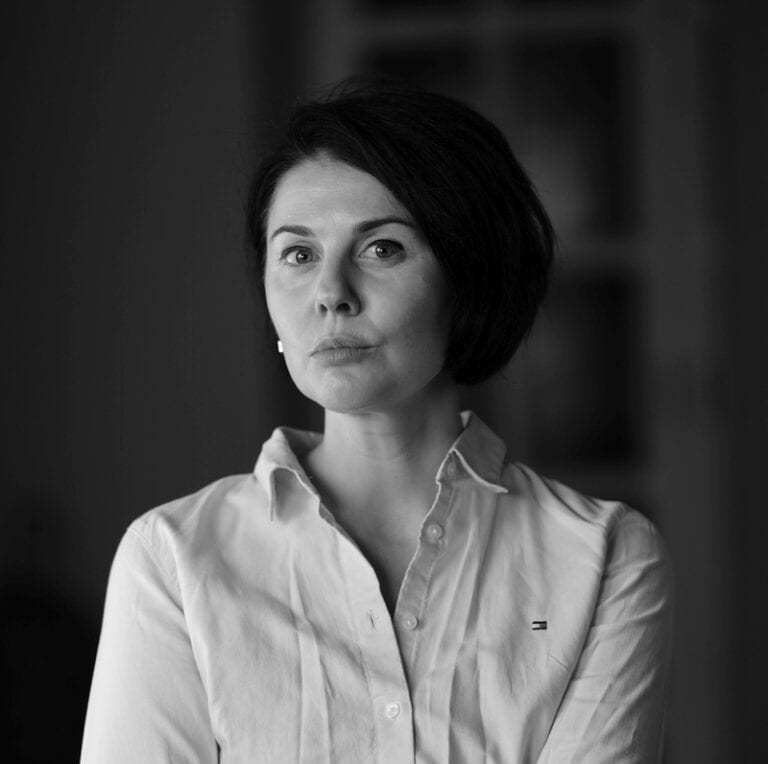
Kateryna Semenyuk
Curator, co-founder of the Past / Future / Art memory culture platform, and head of the Cultural Practices NGO
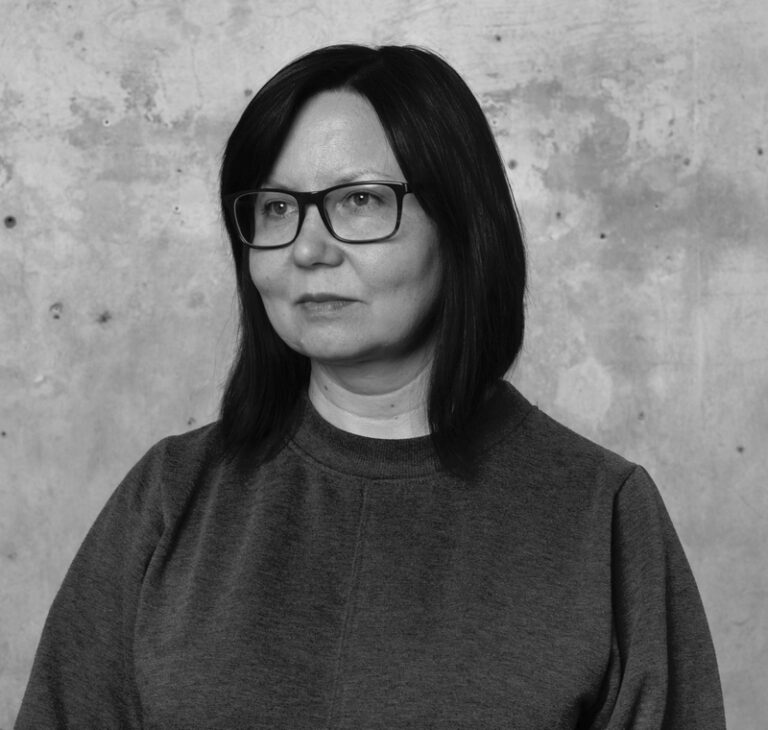
Yuliia Hnat
Co-founder and ecosystem projects and development director at the Museum of Contemporary Art NGO
TIMELINE
mid-February–mid-March 2024
Enrollment
mid-March–May 2024
Educational section
May–July 2024
Practical section, work with case studies
July 2024
Presentation and discussion of ideas of the projects developed by the participants of the practical section
VIDEO FROM THE FINAL PRESENTATION
Photos from the presentation of the Memorialization Practices Laboratory projects’ ideas, Kyiv, Sens on Khreshchatyk bookstore, July 20, 2024
Photos by Ruslan Synhaewsky
Video and broadcast support by Kult Media
ORGANIZERS
Past / Future / Art is a memory culture platform established by the Cultural Practices NGO in Odesa, Ukraine, in 2019. It focuses on memorial, research, and art projects and develops strategies for commemorating significant phenomena of Ukrainian history, initiating public discussions to engage broader audiences in working through the past.
Museum of Contemporary Art NGO (MOCA NGO) is a non-profit organization aimed at creating a new type of professional contemporary art museum institution in Ukraine, serving as a crucial element in the advancement of the art ecosystem. Founded in 2020, the organization brings together and engages artists, cultural workers, and experts who work with contemporary art in Ukraine.
The Memorialization Practices Lab is supported by the Partnership Fund for a Resilient Ukraine (PFRU), funded by aid from the governments of Canada, Estonia, Finland, Netherlands, Sweden, Switzerland, the United Kingdom, and the United States. The Fund unites the Government of Ukraine with its closest international government partners to deliver projects in primarily liberated and frontline communities that strengthen Ukraine’s resilience against Russia’s war of aggression. PFRU aims to strengthen the Ukrainian government’s capacity and resilience to deliver essential support to local communities in collaboration with civil society, media, and the private sector.
